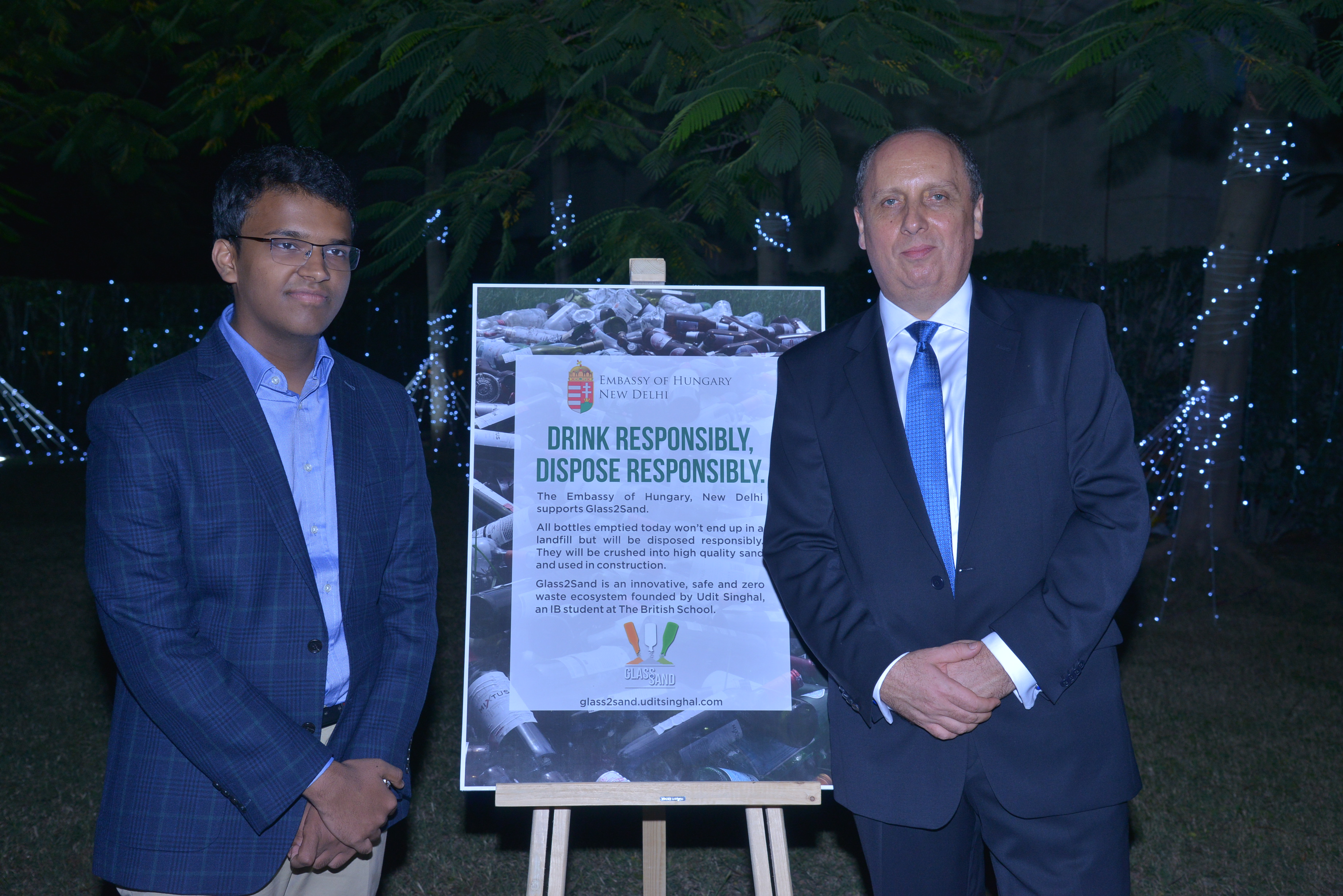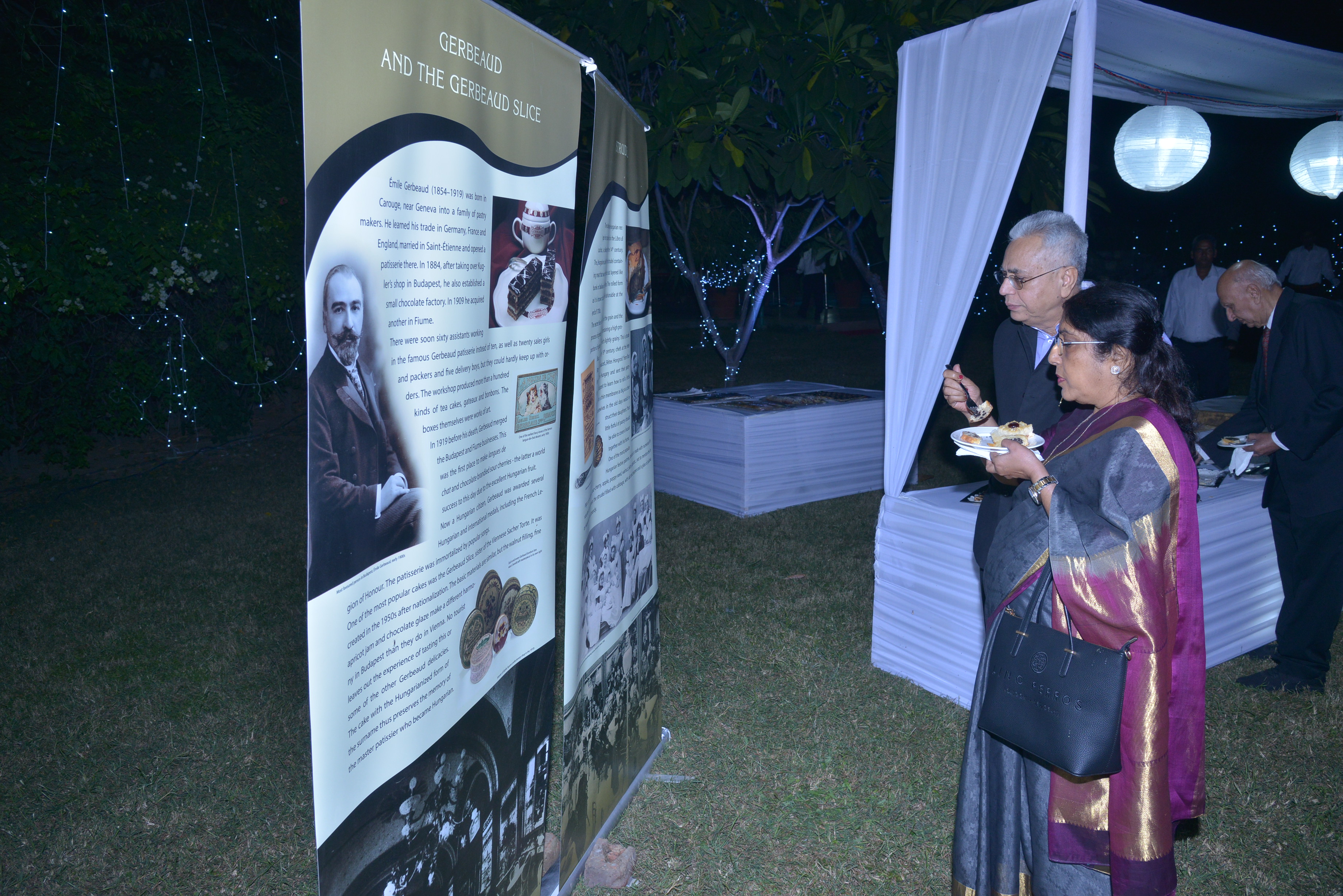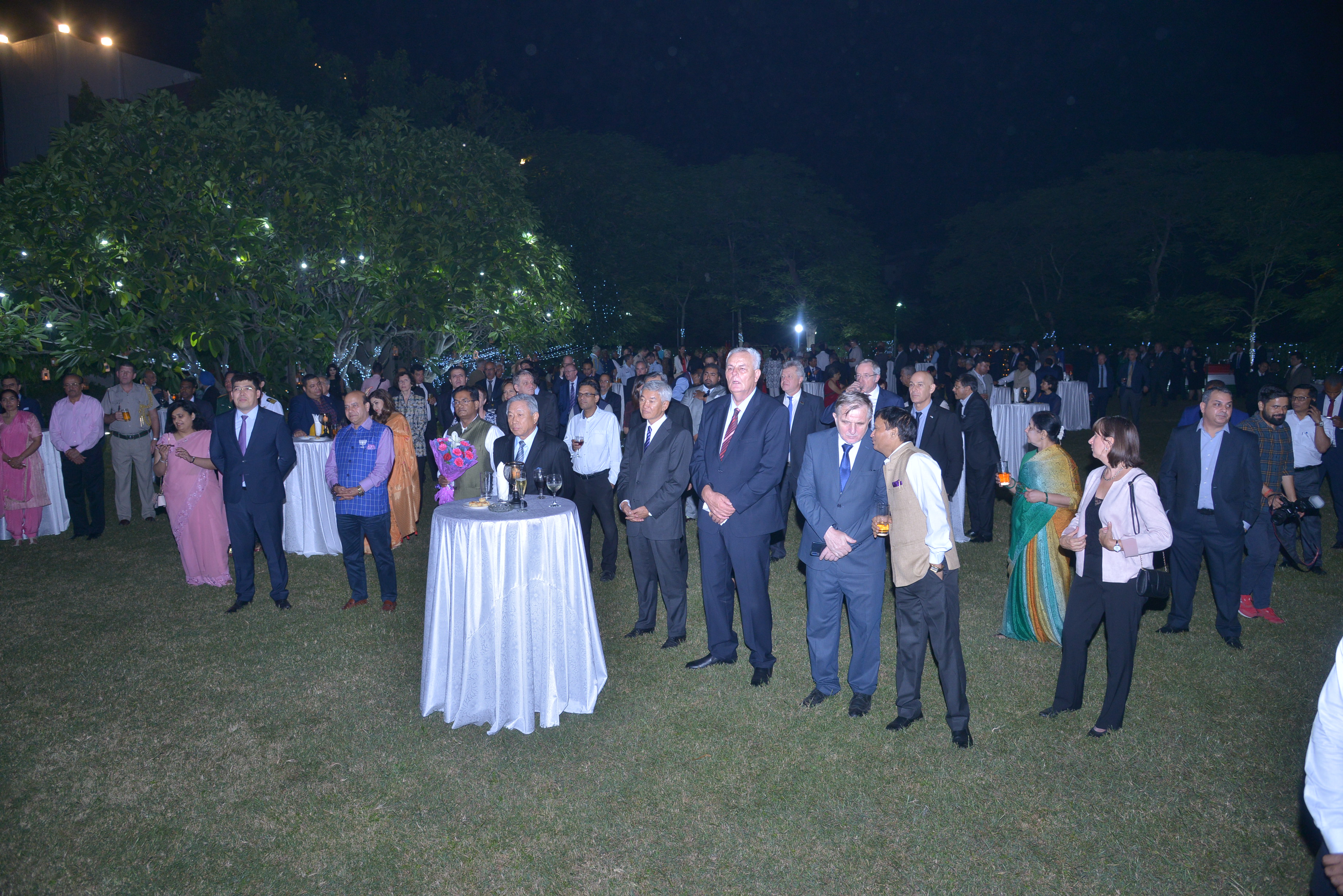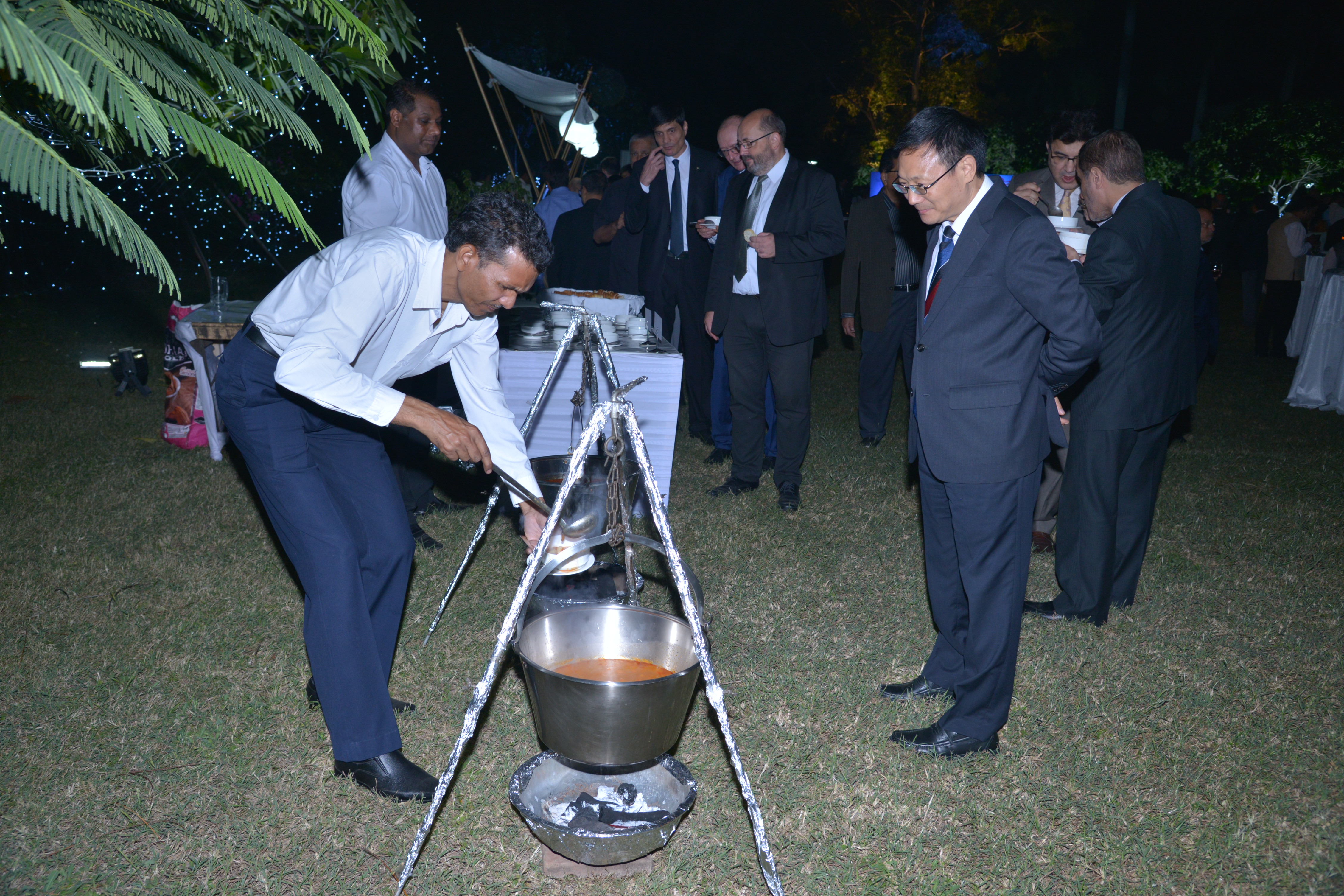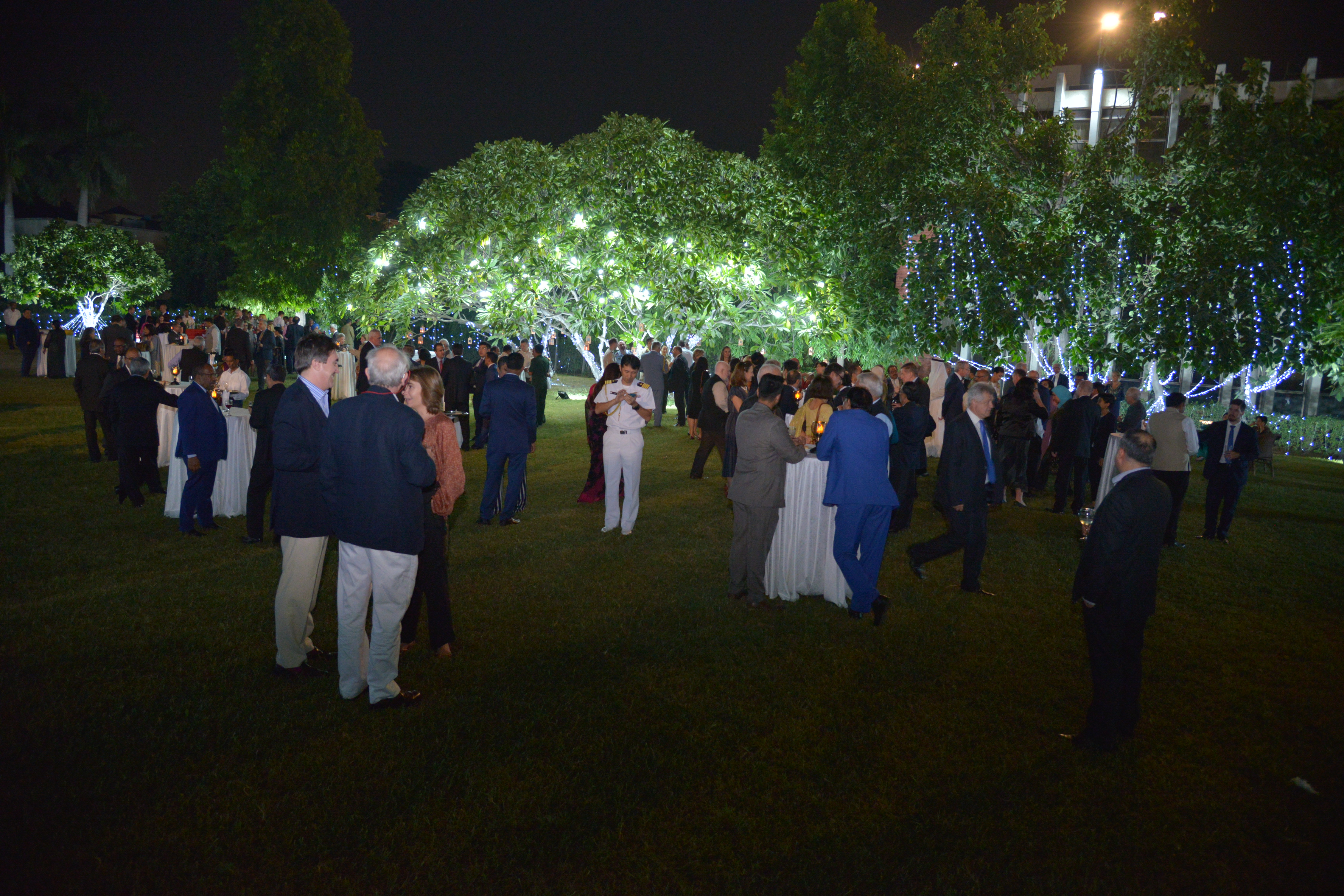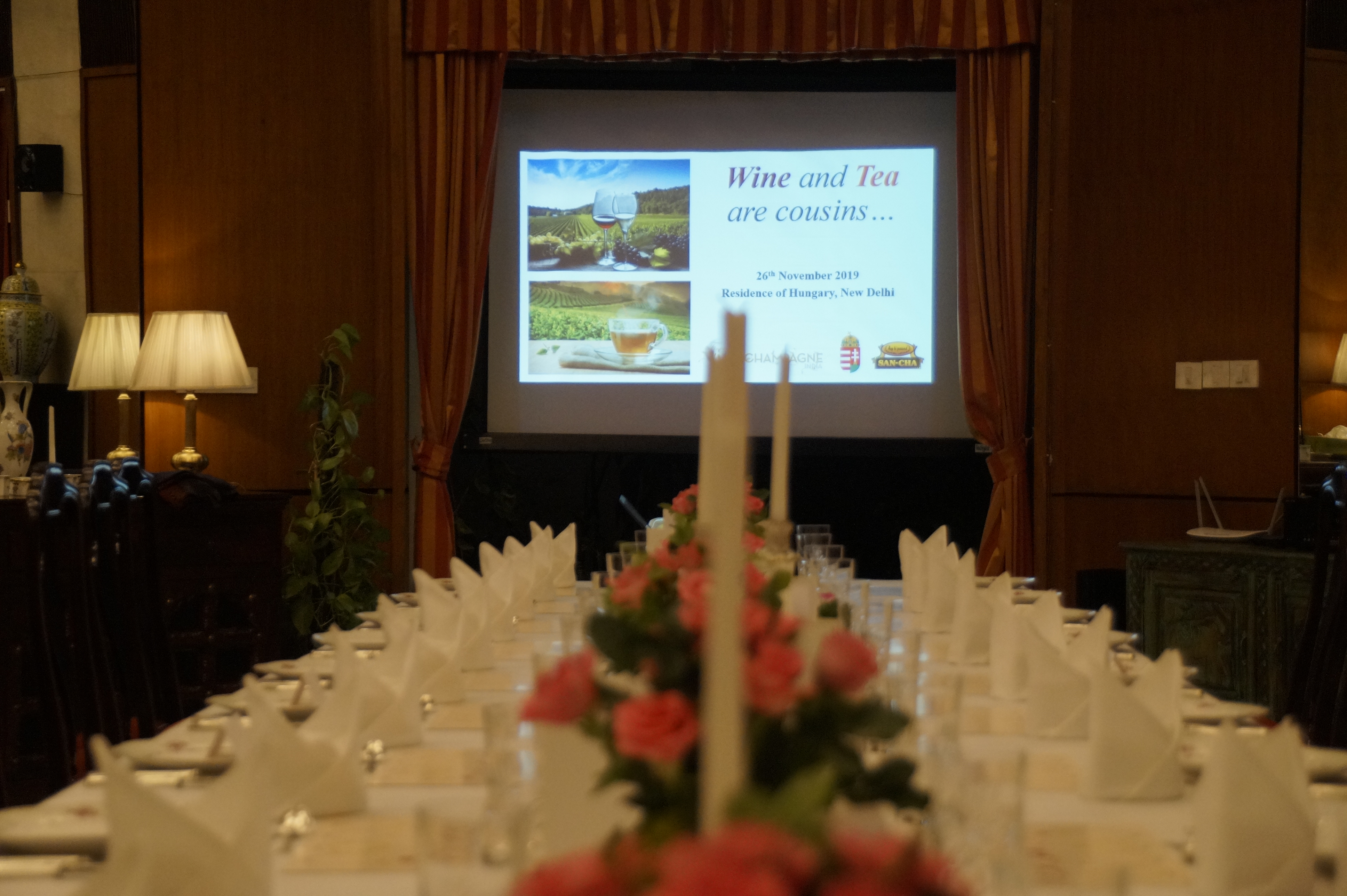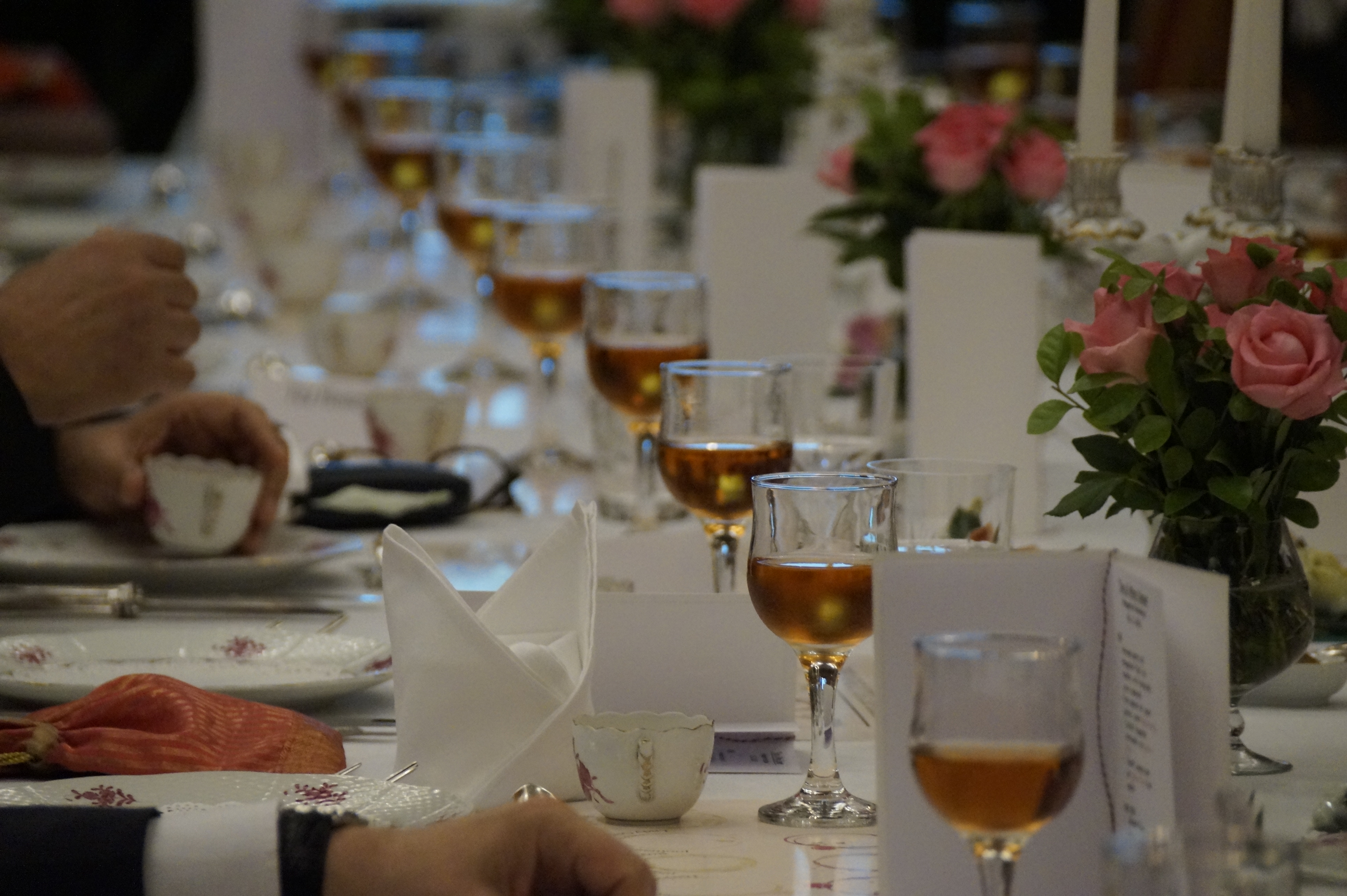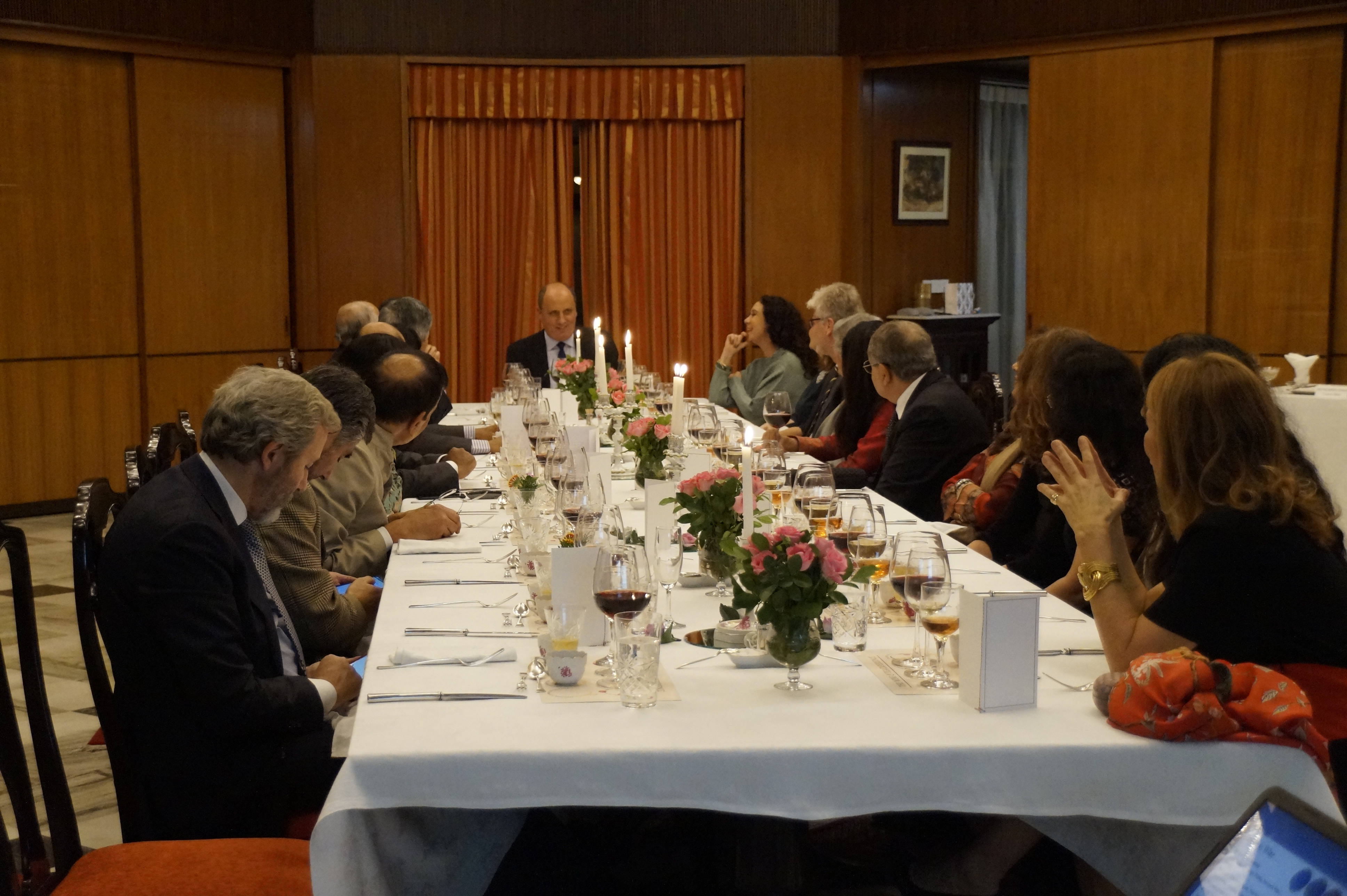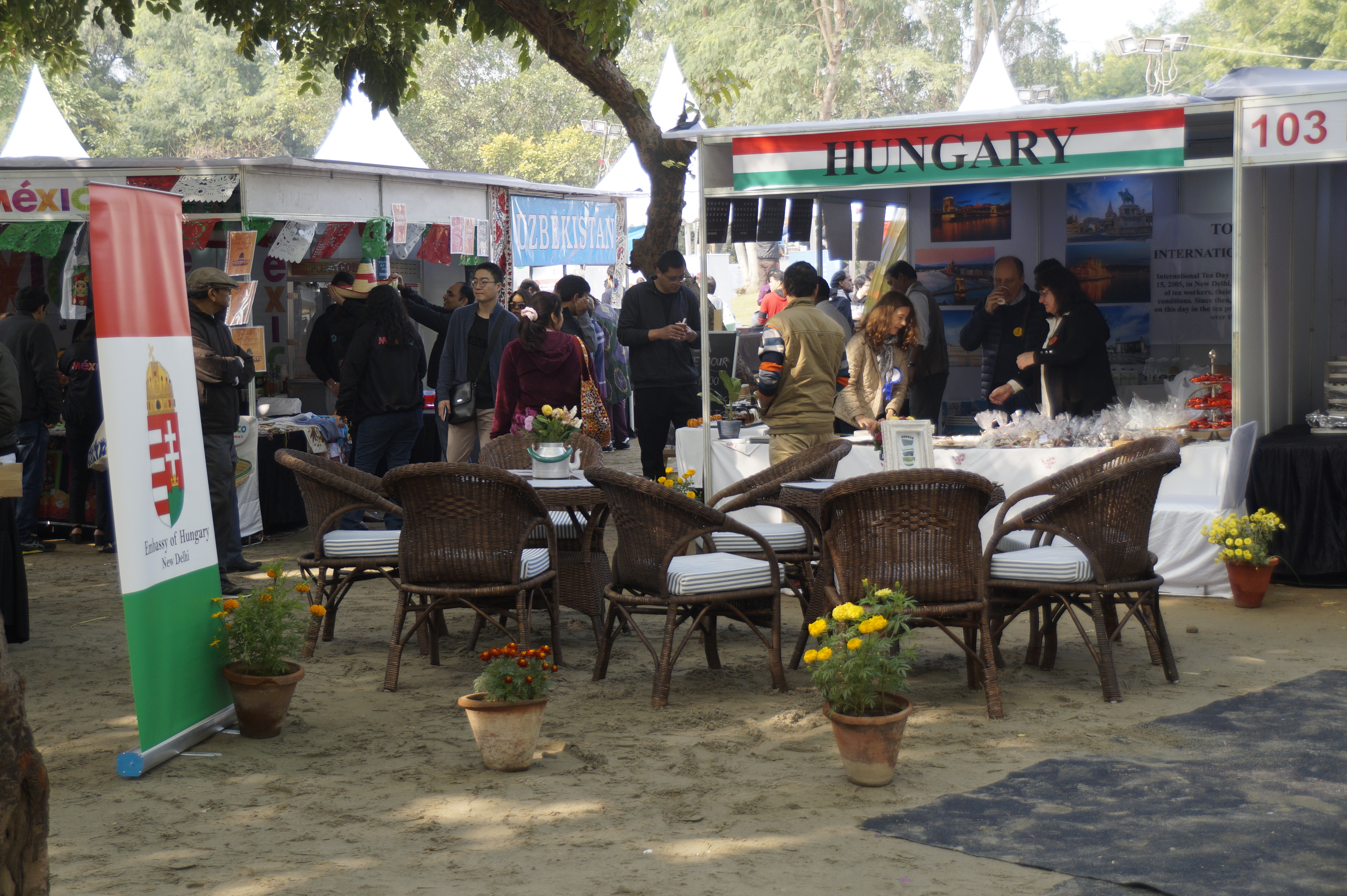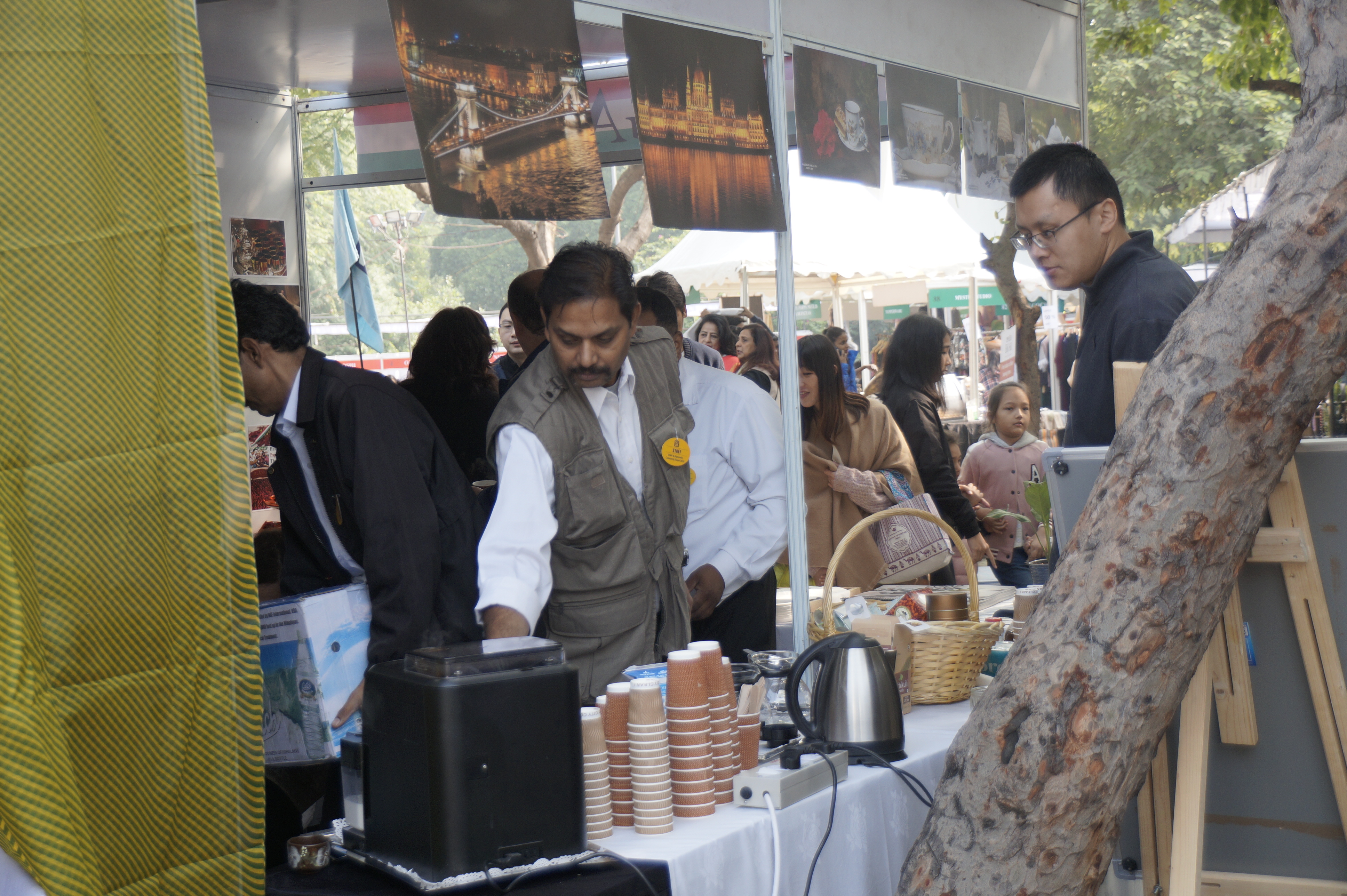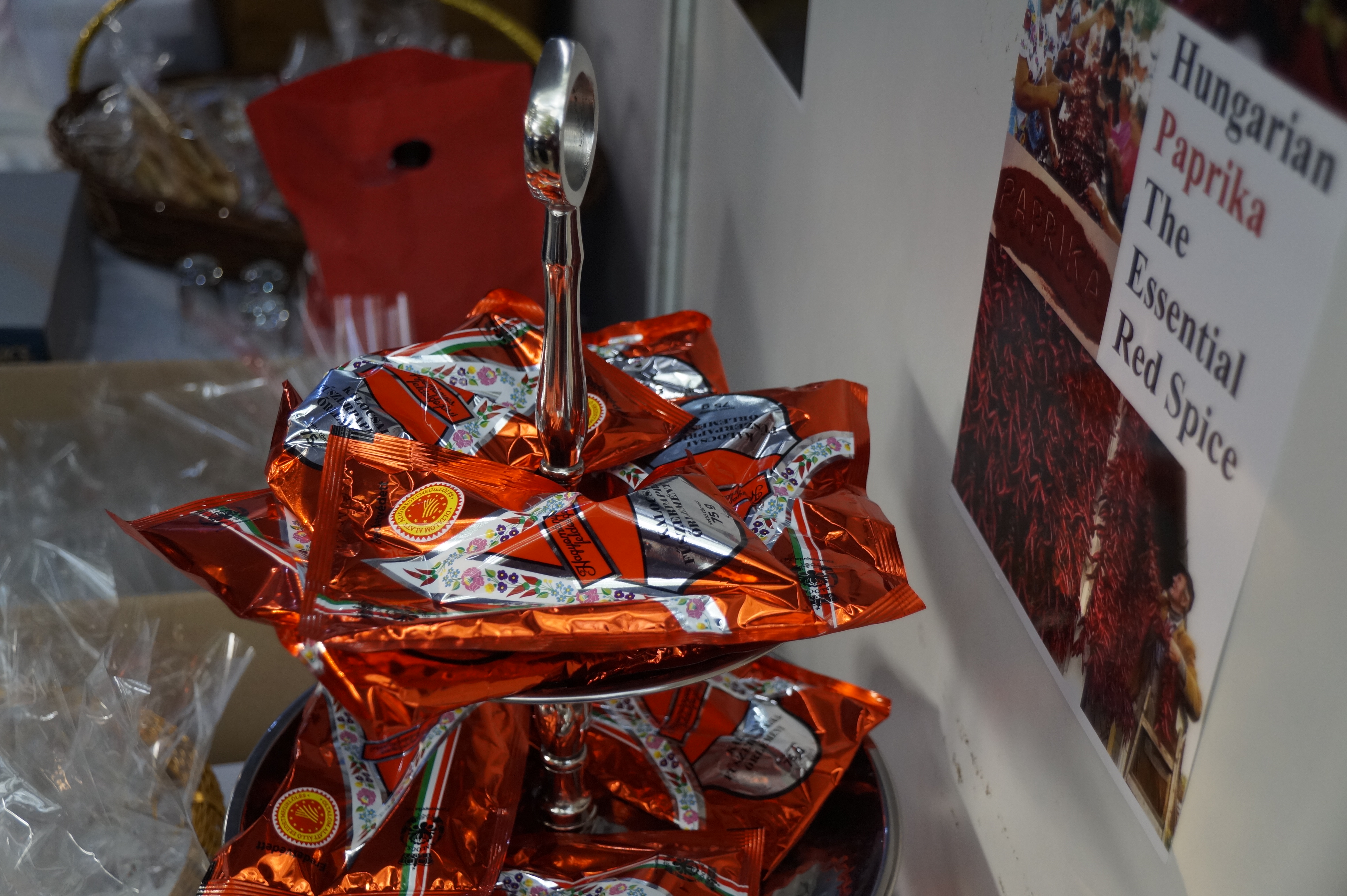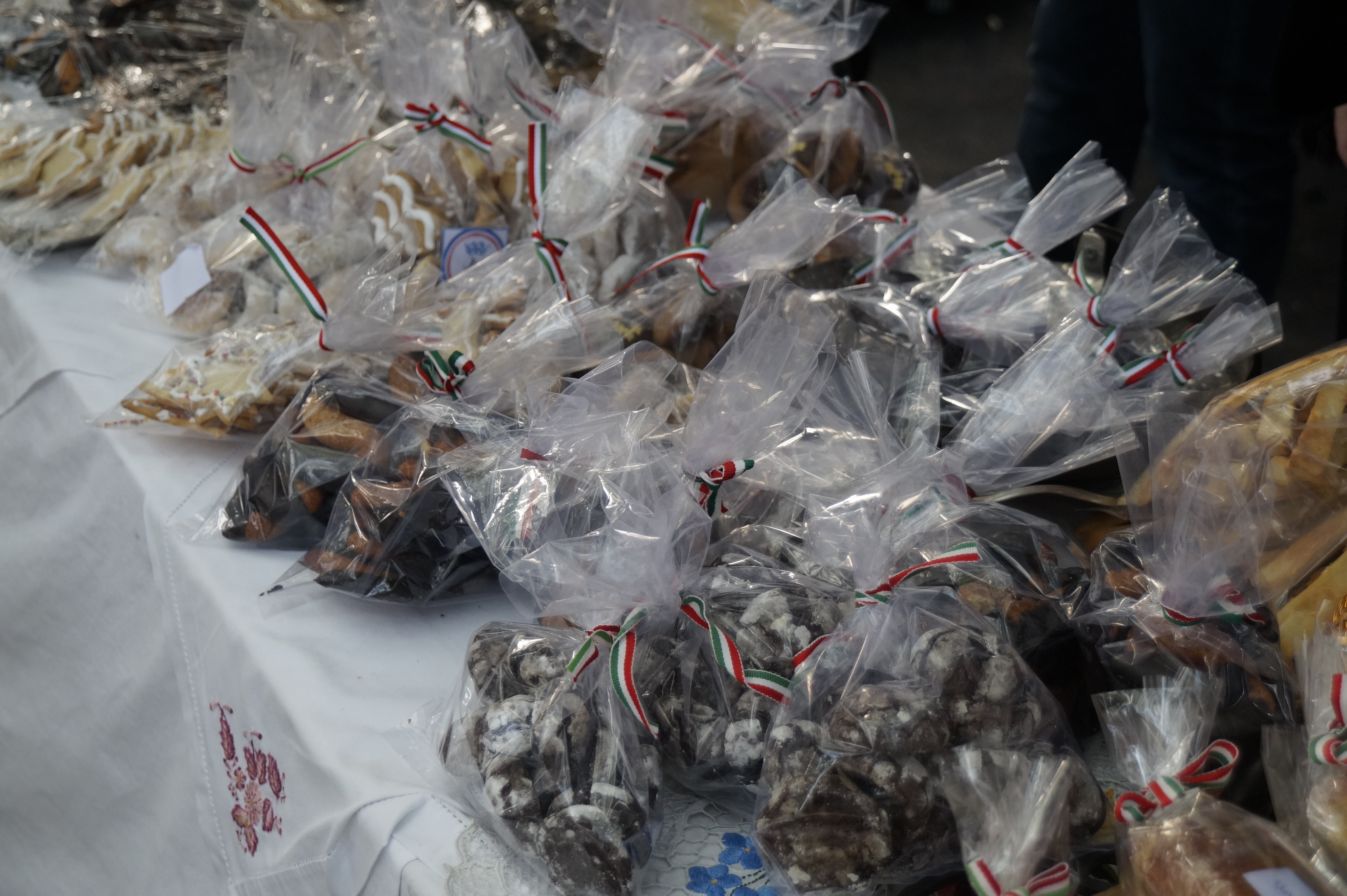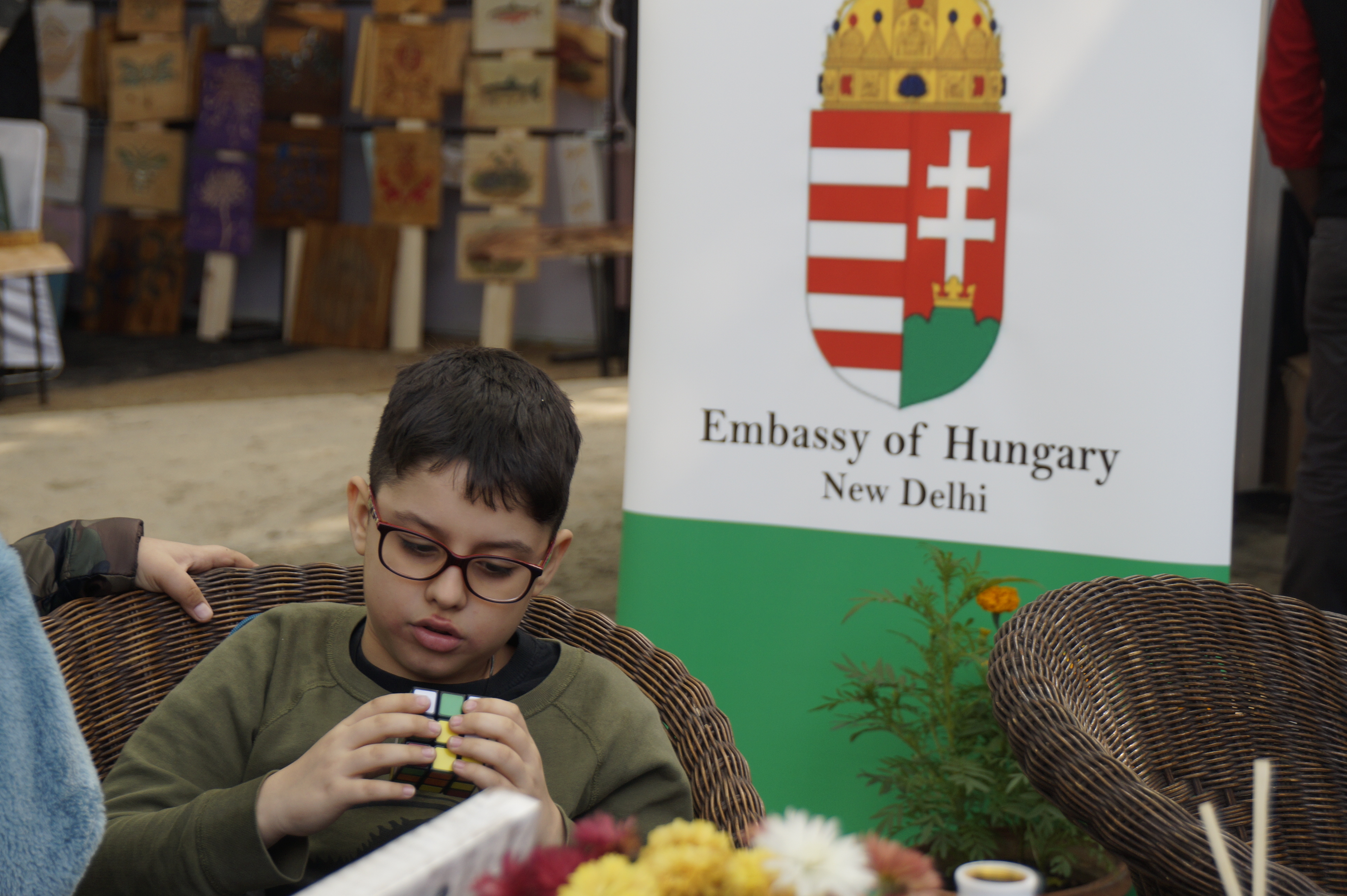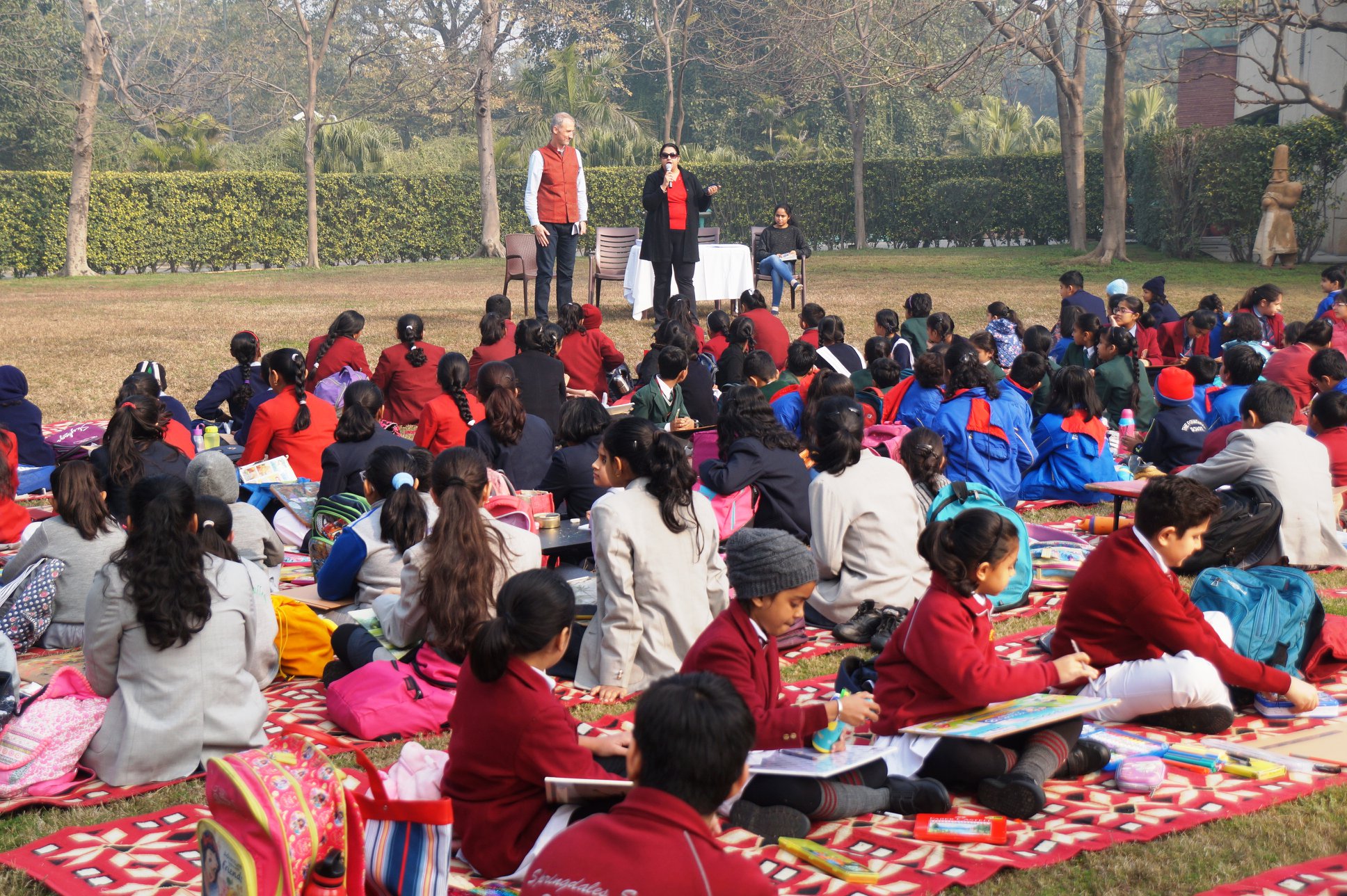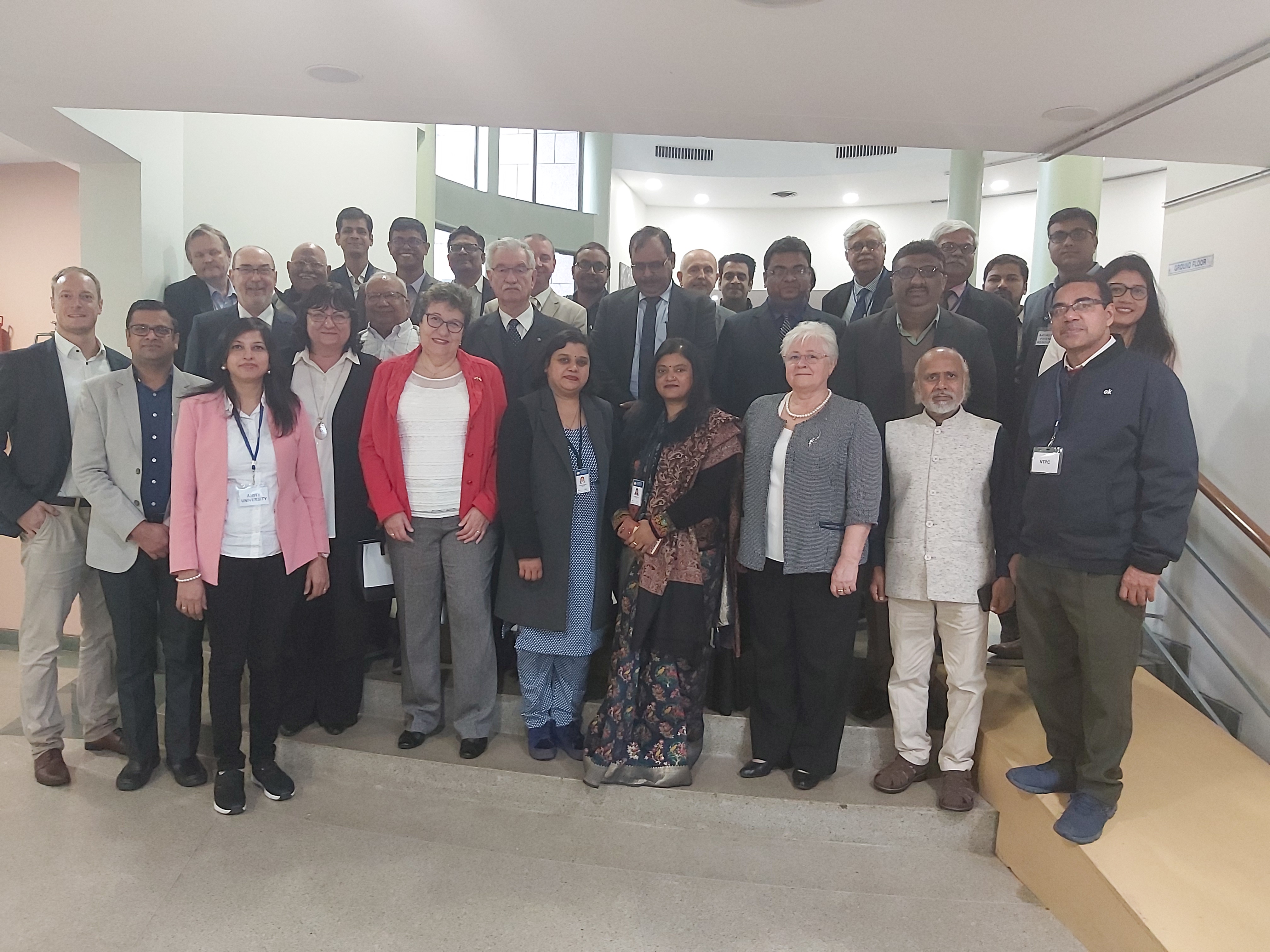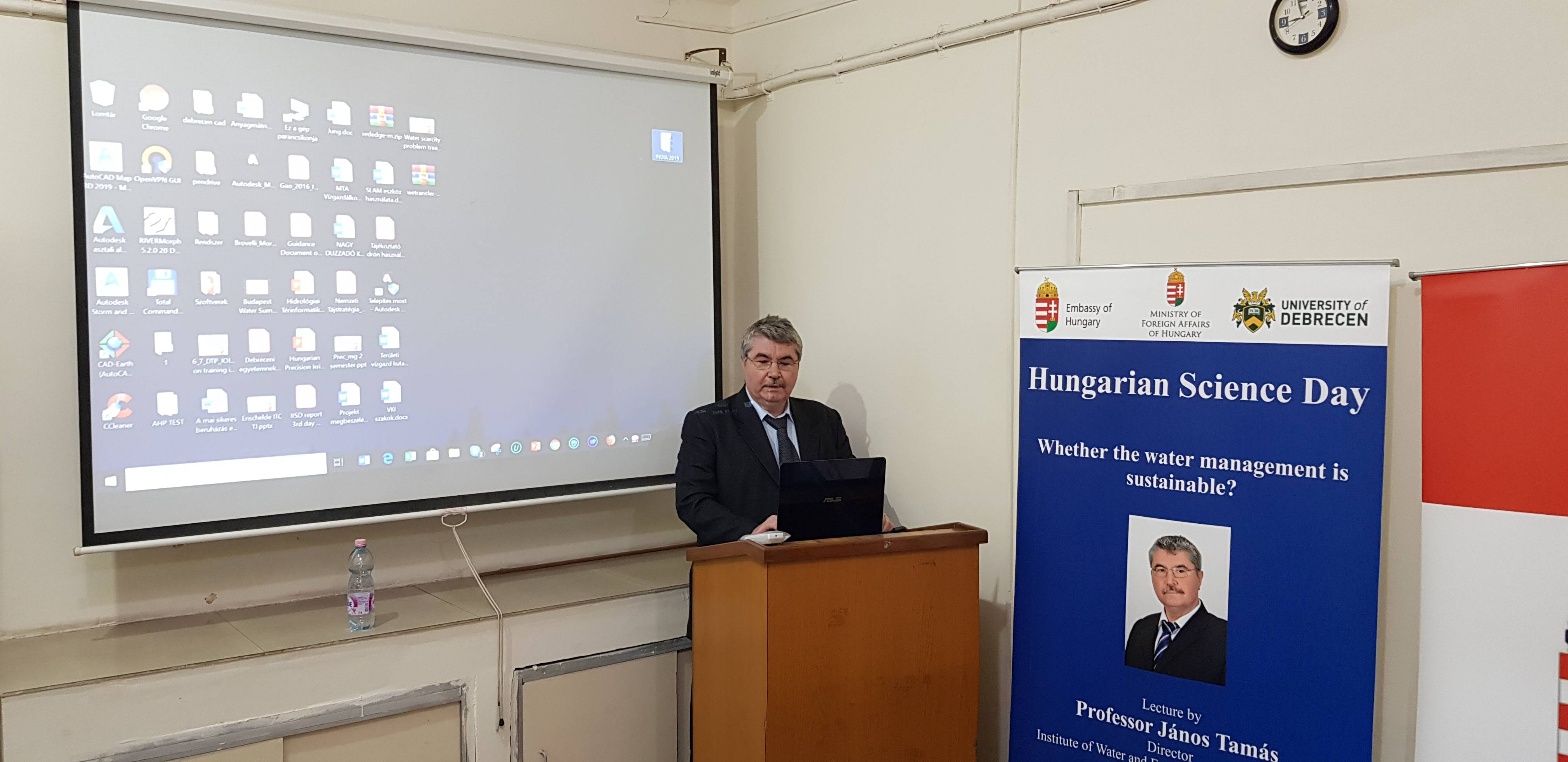Keresés: %s
Keresés: %s
Applying for an Official Certificate of Good Conduct
Applying for an Official Certificate of Good Conduct
Based on data registered in Criminal Records the Criminal Records Authority issues the Official Certificate of Good Conduct for applicants upon request to establish or maintain a legal relationship as well as to certify conditions defined by the law. The Official Certificate of Good Conduct is issued exclusively on the basis of data registered in the Criminal Records Register, the certificate excludes data related to the Offence Register.
The application for the certificate may be submitted in Hungary
- by mail (the application form is available at post offices)
- in person orally in the Customer Service Centre (1133 Budapest, Visegrádi utca 110–112.)
- electronically for customers having Customer Gate login or registration through the Web Assistant application or the mobile application OkmányApp.
Abroad the application can be submitted in person and exclusively via Hungarian diplomatic and consular Abroad representations.
An Official Certificate of Good Conduct can be requested by filling the appropriate form. This kind of service needs your appearance and presenting your passport, so please note that a prior appointment has to be requested. Appointment can be arranged by e-mailing to consulate.del@mfa.gov.hu.
The Official Certificate of Good Conduct is a public document issued only in Hungarian in a form of electronic public document. Should you request a legalised translation of the Hungarian document to English, an additional fee is applicable. Certificate of good character issued by Hungary is valid for 90 days.
The consular fee of this service (Consular fee, Certified translation to foreign language, Certificate copy) is Rs. 5150, and has to be paid by bank card.
The procedure takes about 1 week as a general rule.
Please enclose a self-addressed, prepaid envelope.
Forms:
Datasheet Official Certificate of Good Conduct
Instructions for completing application form (english)
Registration of marriage concluded abroad
Registration of marriage concluded abroad
Hungarian citizens should register their marriages concluded abroad. The application can be lodged at the register offices in Hungary, as a general rule. Application can also be lodged at the Consular Section of the Embassy. In this case the procedure may take up to 3 months or even more.
Appointment:
You can make an appointment by e-mail. Please note that both parties/applicants should appear in person for the appointment!
Required documents:
1. Original marriage certificate (this is required in ALL cases)
If the marriage was concluded in a country other than India you might need to get an Apostille or diplomatic legalisation from the country of marriage. There is no need for translation if the marriage certificate is issued in English. If the marriage certificate is issued in other languages a legalised translation should be enclosed. This document should be translated to Hungarian by the Hungarian Office for Translation and Attestation Ltd (http://www.offi.hu/en) or the translation can be legalised by the competent Hungarian Consulate.
2. Copy of birth certificate of the Hungarian party
3. Completed and signed application form.
Please fill in the application form in Hungarian with block capital letters in accordance with the rules of the Hungarian language.
4. Proof of marital status of the Hungarian national prior to the marriage
If you were divorced before getting married again: final court decision about the divorce (with legalised Hungarian translation). If the marriage was dissolved within the EU after 1 May 2004 please submit the certificate issued by the court in accordance with Brussels II regulation (Certificate referred to in Article 39 of Council Regulation 8EC) No. 2201/2003 of 27 November 2003 concerning judgments in matrimonial matters. This certificate does not need to be translated in Hungarian.
If you were widow(er) before getting married again: death certificate of the deceased spouse ((with legalised Hungarian translation).
5. Proof of Hungarian nationality
Valid passport, valid identity card or certificate of nationality which has been issued within the past 3 years.
6. Proof of nationality in respect of the non-Hungarian party
Valid passport.
7. Certificate of marital status of the non-Hungarian party prior to the marriage
The non-Hungarian party has to present an official certificate on his/her previous family status (prior to the marriage). This document should be translated to Hungarian by the Hungarian Office for Translation and Attestation Ltd (http://www.offi.hu/en) or the translation can be legalised by the competent Hungarian Consulate. Apostille or diplomatic legalisation from the country of origin might also be necessary.
EU citizens are not required to present such a certificate.
8. Request for registration in the Registry of Personal Data and Address
The Hungarian national has to fill in point IV. of the application form in the following cases:
- if the Hungarian national does not have a valid Hungarian ID card
- AND he/she does not have a Hungarian address card with the remark “Külföldön élő magyar állampolgár”
- AND he/she has never lived in Hungary.
9. Consular fee:
For information about the fees please visit the following link: consular fees
Forms:
- Form for change of married name: formanyomtatvány
- Application form for registration of marriage
- Information sheet of Application form in English
***
NOTICE!
Hungarian citizens should have all events (birth, marriage, divorce and death) registered that take place abroad. Applications may be lodged at the registrar offices in Hungary or through the Consular Section of the Embassy of Hungary.
Registrations are done and certificates are issued by the Government Office of the Capital City of Budapest. The Consular Section of the Embassy Of Hungary in New Delhi and Consulate General of Hungary in Mumbai are authorized to collect and forward applications only in India.
Estimated timeframe in case of complete applications: three months or even more.
Government Office of the Capital City of Budapest (Budapest Főváros Kormányhivatala Hazai Anyakönyvi Osztály 2.)
1075 Budapest, Károly krt. 11.
email: hazaianyakonyv@bfkh.gov.hu; Tel.: + 36 1 323-3176
Certificates issued by Hungary are trilingual (Hungarian, English and French) and typed.
Global Digital Delivery Center in Budapest
Tata Consultancy Services (TCS) opened a new Global Digital Delivery Center in Budapest – creating 500 new jobs.
This new unit will carry out high added-value activities in the field of information technology and cognitive business processes focusing on digital transformation and complex technological solutions.
National Day, 23 October 2019
National Day reception at the Hungarian Embassy in New Delhi on 23 October 2019, with guests, friends, Hungarian food and wines.
The embassy launched a glass collection action for recycling
Celebrities of Hungarian cuisine
Guests
Hungarian goulash on offer
Beautiful garden decoration
Tea and Wine dinner at the residence
Tea & Wine are cousins.
We organized a TEA & WINE dinner at the Hungarian residence. We tasted and compared some selected Hungarian wines and Indian teas matching to one another in aftertaste and palate tone.
The Tea Host and Hostess were Mr. Sanjay Kapur, Master Tea Taster and Naina Kapur, Creative Director of the SANCHA Tea. The Wine Host and Hostess were Mr. Rajiv Singhal, Champagne Ambassador in India and Ritu Singhal, Chief Executive of FINE Wine & Champagne India magazine.”
Charity Bazaar
Hungary at the Charity Bazaar on 15 December 2019.
The Embassy of Hungary in New Delhi welcomed visitors to the National Stand at the Charity Bazaar of the DCWA and the Diplomatic Community. We offered Hungarian products, cakes, and coffee and tea. Our favorite photo is when a little boy plays the Hungarian Rubik's Cube next to the booth.
Children's drawing competition
On February 12, 2020, one of the oldest programs of the Hungarian Information and Cultural Centre in New Delhi, a children's drawing competition was held on the lawn of the Hungarian Embassy, attracting many children, accompanying teachers and parents each year, thus providing an opportunity to get acquainted with Hungarian culture. This year, almost two hundred (exactly 172 students and about 25 attendants) of 15 Delhi schools were up to date, including students from the Delhi International French School (LFID) and Delhi Disha School for underprivileged children. too.
Innovation workshop
Our Embassy organized the 1st Hungarian-Indian Innovation Workshop with the participation of seven Hungarian companies, with the support of the Department of Science Diplomacy of the Ministry of Foreign Affairs Hungary, and with the contribution of Invest India.
The workshop was attended by 9 Hungarian and 29 Indian participants from 17 companies and one university. The event was opened by Ambassador Gyula Pethő. In his welcoming speech, he emphasized that he sees great opportunities in the field of Hungarian-Indian innovation and startup cooperation, and hopes that a successful first such meeting will pave the way for later similar events, and Hungary will also welcome Indian partners at similar
Celebration of Hungarian Science 2019
On 21-22 November 2019, Professor János Tamás, Head of the Institute of Water and Environmental Management, Faculty of Agriculture, Food Science and Environmental Management, University of Debrecen gave a lecture at the University of Delhi and Jawaharlal Nehru University on the occasion of the Hungarian Science Festival. The lecture started with question: Is the water management is sustainable?Unfortunately at Jawaharlal Nehru University, only a very small number of students showed up for several days of student demonstration activities, but faculty members and PhD students were present. At the University of Delhi, about 30 students, PhD students and professors attended the lecture.
Announcement of the Ministry of Foreign Affairs and Trade of Hungary
Certain unidentified persons are taking advantage of the situation generated by the SARS-CoV-2 (COVID19) global pandemic with the intention to commit fraud. Various cases have been reported where persons acting on behalf of fictious companies or companies in liquidation were approaching foreign healthcare institutions with business offers, claiming to be in possession of a large supply of health protective equipment (mainly facial masks). In such cases, down payment was required in return for the promised shipment.,Eventually, various excuses where used as to why the promised goods were never actually delivered to the intended purchaser.
Frauds of that nature even if these are only attempted but not completed, are capable of undermining confidence in the credibility of Hungarian businesses as well as the Hungarian economy as a whole. Therefore you are kindly requested to exercise caution and perform due diligence prior to engaging in any such transactions.
If you require any further information or assistance, please contact the Commercial Attaché of the Mission.
Hungarian President János Áder's speech on Day of National Unity
„My feelings toward Hungary were less detached. I confess that I regarded and still regard that Turanian tribe with acute distaste. Like their cousins the Turks, they had destroyed much and created nothing. Budapest was a false city devoid of any autochthonous reality. For centuries the Magyars had oppressed their subject nationalities. The hour of liberation and retribution was at hand.” – wrote British diplomat Harold Nicolson – in 1919 –, who played a major role when the Trianon-borders were drawn.
My fellow compatriots,
What did this diplomat know about Hungary? About St Stephen founding the state, about the wisdom in our first king’s admonitions, about the valiance of St Ladislaus, about the heroism of János Hunyadi, about the world acclaimed victory at Nándorfehérvár?
What did he know about the Renaissance court of King Matthias, about his library unrivalled in Europe and the codices it contained, about the giants of the reform age, our freedom fight in 1848, or the economic boom, the scientific achievements of the half a century before World War I?
Nicholson knew precious little of all this. Yet – as a diplomat, party to the decision – he still fundamentally influenced the future of Hungarians.
Hungary mourned – on 4 June - one hundred years ago today. Budapest was also draped in black. Flags were flown at half-mast. Newspapers were published with black mourning borders. Most of the shops, schools and offices remained closed. Buses and trams were halted. Bells tolled in the capital and everywhere in Hungary. Hungarians observed five minutes of silence.
Not a single Hungarian could come to terms with the loss, the humiliation, the codified illegality.
Hungary lost two-thirds of its territory in 1920. Her population shrunk from 18 to 7 and a half million. More than three million Hungarians found themselves outside of the borders. Romania was given land that itself was larger than what was left of Hungary. The majority of our wheat fields, 90 percent of our forests, two thirds of our railway networks were given to neighbouring countries.
Less mention is made of the economic development that Trianon halted. We know from our elementary school studies about the role played by István Széchenyi in building the first cylinder mill in Budapest. It is a lesser known fact that 60 years later, at the turn of the century, Budapest was the largest mill center of Europe. Only Minneapolis in the United States surpassed it globally.
We do not usually talk about the dynamic development of the Hungarian machinery industry. This, despite the fact that we have every reason to be proud. The first locomotive manufactured in Hungary came off the line in 1873 and 27 years later the one thousandth unit rolled out of the factory.
Within 30-40 years, Hungary was able to produce any equipment and machinery needed in agriculture.
World leading electric industry. Dynamic urban and railway infrastructure development. Public and private buildings lending a true metropolitan atmosphere to Budapest. Only London preceded the Budapest underground in Europe. The Parliament building was inaugurated in 1904.
Beside the losses suffered by the country and the halted economic development, we should also talk about the direct losses suffered by the people.
Several waves of atrocities swept across Hungary between 1918 and 1920. There was no decision yet in Trianon, the new borders were not yet drawn, but a “post-war war” was ravaging the Carpathian-basin. Initially it was only the rampage of the “free corps”, the looted granaries, the burning palaces, ethnically or socially motivated violence. Later the brutality of the occupying Czech, Romanian and Serbian units.
Salvos, arbitrary violence, looting, the defilement of women. Hundreds of thousands of people forced to flee. Those staying behind being deprived of their work, their jobs and their means of living. People losing their land, their houses and their belongings. Terror, fear, humiliation, settlements torn apart.
When talking about Trianon today, it is the fourth successive generation posing the same questions: Could the world war have been prevented? Who was responsible for what? Why was the Trianon dictate so utterly unjust on Hungary?
Many of the historians studying the era, share the opinion that – although the leader of every country spoke about peace – in reality everybody was preparing for war at the beginning of the 20th century.
The decline of the Ottoman Empire, the political vacuum created on the Balkans, the expansion of tsarist Russia, the intensification of the Pan-Slav idea, the growing strength of Germany, revanchism in France because of losing Alsace-Lorraine, the growing autonomy demands of ethnic minorities were all pointing in this direction.
After the assassination of Franz Ferdinand, the Austro-Hungarian Monarchy wagered that its conflict with Serbia would remain local and be limited to the Balkans at the most.
This was supported by the European experiences of the previous 50 years. Vienna thought, that Germany’s stance regarding the Monarchy will keep Russia away. Saint Petersburg thought that the Russian mobilization will prompt the Monarchy to retreat. Berlin believed that England will remain neutral and this will keep France away.
Everybody was wrong.
The Hungarian Prime Minister István Tisza was initially against entering the war. He thought that a concurrent war against the Russians, the Serbs and the Romanians would not leave enough troops to protect Transylvania. A probable victory would tip the delicate ethnic balance of the Monarchy. After two weeks of wrangling, Vienna convinced Tisza, who at the Ministerial Council meeting deciding on the war only insisted that the Monarchy should issue a statement, that it did not intend to annex Serbian territories.
The Austro-Hungarian Monarchy declared war on Serbia, Hungary became a warring party. Soon the war developed into a world war. After four years of fighting, Hungary – as a losing party – could not escape serious punishment. Why?
After the German blitzkrieg strategy proved to be a fiasco and the war was consuming more and more resources, the Entente and the Central Powers insisted that countries, which had remained “neutral” up until then, should join the war. However, bringing the neutrals – Italy and Romania – into war was only possible if they satisfied territorial demands of these countries, which was only feasible at the price of the complete military collapse of the enemy. Italy entered into the war on the side of England and France in the hope of getting South-Tirol, Istria, a part of Dalmatia and some parts of the Ottoman Empire as well as the hope of expanding its African colonies. The Entente – already in 1916 – promised Bukovina, Transylvania and a substantial part of East-Hungary to Romania.
By today it is more of a historic peculiarity that – on 7 May 1918 – two years after entering into war, Romania signed a peace with Germany and the Austro-Hungarian Monarchy. This also came at a price. The recognition of the Union of Bessarabia with Romania that was declared earlier.
However, six months later – by when Germany had in essence capitulated – Romania decided to disregard the peace treaty and entered into war again on the side of the Entente powers in the hope of acquiring the territories they wanted earlier.
By 1918, the fate of three monarchies was sealed – the German Empire, the Austro-Hungarian Monarchy and tsarist Russia – which had in earlier centuries fundamentally decided the state of power play in Europe.
France – after its earlier ally fell out – was in need of new alliances, in order to balance the weight of Germany. Furthermore a buffer zone was indispensable in order to prevent the expansion of the Bolsheviks.
This new alliance also came at a price. The winning powers forced the defeated parties, mainly Hungary to pay this price.
In his admonitions, Saint Stephen warns his son to not punish or condemn anyone immoderately.
Five countries finished World War I on the side of the defeated. Let us compare the extent of the punishment meted out on Germany and Hungary. While Germany lost 13%, Hungary lost 67%, that is two-third of its territory. While close to 4% of Germany’s population found itself under the jurisdiction of another country, in the case of Hungary, almost 60% of the population was impacted.
Let us also record a few other facts. Hungary was only invited to the peace talks with one year delay; until then the country was not able articulate its position and its arguments during the drafting of the treaty conditions. The Council of Foreign Ministers dedicated only one single session to discussing the Hungarian borders. They approved the report of the two preparative committees without any tangible debate. (This is why characters, like Nicholson quoted at the beginning of the speech could play such a significant role.) The Wilsonian principles on self-determination were only applied to the detriment of Hungary. By the time the Hungarian delegation arrived in Paris, US President Wilson had not only turned his back on his principles, but also the negotiations, the US party was represented at the hearings by their ambassador to Paris. Albert Apponyi, the leader of the Hungarian delegation was given one single occasion to speak. There was no possibility to debate, to share arguments, to presents documents for public scrutiny.
The fate of Hungary was not decided in 1920. It happened much earlier. At disingenuous behind the scene talks. Unprepared politicians, political desperados, self-proclaimed prophets, paid agents, biased, partially corrupted experts, journalists tainted with anti-Hungarian bias all worked together to create what we call the Trianon peace dictate today.
One hundred years on, we have every right to ask the question: Did Trianon bring peace? No, the carnage continued two decades later. Did it help the economic development of the Central and Eastern-European region? No. Did it help reduce the ethnic tension in the region? No. The decision turned a multinational country in several multinational countries. Thereby sowing the seeds of further strife. Furthermore, it was unable to prevent the expansion of German national socialism or Russian Bolshevism.
In his memoirs of the war, Churchill wrote the following: „… There is not one of these peoples or provinces that constituted the Empire of the Habsburgs to whom gaining their independence has not brought the tortures which ancient poets and theologians had reserved for the damned.”
The last question we have to ask is: Was the Trianon decision just? The fact that we Hungarians consider it unjust is understandable. But what do others think about this?
Years later, Harold Nicholson, who I quoted at the beginning of my speech, who could hardly be accused of pro-Hungarian sentiments wrote the following: „The Committee on Romanian claims (...) thought only in terms of Transylvania, the Committee on Czech claims concentrated upon the southern frontier of Slovakia…these two separate Committees had between them imposed upon Hungary a loss of territory and population which when combined was very serious indeed.
Had the work been concentrated in the hands of a ‘Hungarian’ Committee not only would a wider area of frontier been open for the give and take of discussion, but it would have been seen that the total cessions imposed would place more Magyars under alien rule than was consonant with the doctrine of self-determination.”
But we could also quote British Prime Minister, Lloyd George at the time: „There will never be peace in South Eastern Europe if every little state now coming into being is to have a large Magyar irrendenta within its borders. I would therefore take as a guiding principle of the peace that as far as is humanly possible the different races should be allocated to their motherlands and this human criterion should have precedence over considerations of strategy or economics or communications…”
Finally let us quote the Francois Mitterand, the Socialist President of France who said the following in 1992: “All the peace treaties of this century, especially the ones after the Great War of 1914-1918, starting with the Versailles Treaty, but also that of 1945 and those that followed were all unjust peace treaties which always negated historic, geographical, intellectual or ethnic realities in order to cater for the glory or the power desires or direct interests of the winner. The drama of the next war was always coded into the provisions of the previous peace treaties.”
Distinguished Commemorating Audience,
I could also quote Ady, Attila József or Kosztolányi about all that happened before and after Trianon. Gyula Juhász, Babits, Karinthy. Krúdy, Móricz, Reményik. Kós Károly, Antal Szerb, Márai. We could dedicate a separate commemorative session to the pain they felt because of this injustice.
Yet, I will not quote from them, but instead I will bring a few lines from Arnold Ruttkay, who was born after the Trianon dictate and fled to Australia in 1948:
„What more do they want…?
Weren’t all the seals on the peace document,
the ancient land given for free enough….?
Wasn’t the border drawn hastily
in the backyard by the raspberry bushes enough?
Weren’t the removed street signs,
the rewritten maps and the fallen statues enough…?
The mother tongue has gone into hiding a long time ago,
Only to be whispered behind closed windows.
The old school has closed,
the song has faded,
the bell tower no longer stands and
memories shiver with fear.”
On the one hundredth anniversary it is also fit that we should inspect ourselves.
The tragic situation of Hungary between the end of the World War and the Trianon decision was only aggravated by the catastrophic blunders of the country’s political leadership. During this barely two-year period conservative incompetence, liberal inaptitude and Bolshevik utopia all came together.
Procrastination, vain hopes, unfounded hopes for cultural dominance and historic deeds made it impossible to assert interests on an uneven playing field. Where were the intelligence reports about the background talks and deals of the Entente and later Little Entente countries at the turn of 1918-19? Where was the elementary instinct of self-defence to reorganize the military and protect the borders? Where was the diplomatic background work, personal experiences, the presentation of our arguments to have the ethnic borders respected?
It took more than political blindness to think that it was going to be enough to take a principled stance against profiteers and booty hunting efforts, to not see what kind of political and economic deals were made in the background. Seriously irresponsible behaviour.
Mihály Károlyi could have done at least one thing: to keep the military together and to create a strong law enforcement. This could have been protection against the Czech and Romanian incursions into the country. It could also have been an opportunity to isolate the communists.
Could timely, perseverant and tenacious political and diplomatic lobbying have helped to reduce the losses, in light of the fact that Apponyi’s performance – when everything was already decided – managed to capture the interest of the British Prime Minister and to inspire feelings of sympathy in the Italian Prime Minister?
A war lost, the chaos caused by two revolutions. The grave socio-economic consequences of Trianon. A state on the verge of bankruptcy.
But the nation wanted to live. Reconstruction of the country had to begin.
István Bethlen’s government was left to do the work. English historian Bryan Cartledge described Bethlen – who was a member of the Hungarian delegation in Paris – with the following words: “…the absence of talent was striking in the post-war period, István Bethlen was the only man of talent, who could efficiently represent Hungary on the European political stage.
He learned his lesson well as a junior member of the delegation at the Paris peace conference. Later he was also able to efficiently apply everything that he learned.”
During his first year in office, István Bethlen, who became head of the Hungarian government in 1921 had the National Assembly pass a law, which dethroned the Habsburgs. Organized a referendum in Sopron, reducing the size of the population ceded to Austria by 55 thousand. Worked authoritatively to create the conditions for political stability first and economic recovery later. Reduced the international isolation of Hungary. Managed to secure a loan with the help of the League of Nations to relaunch the economy. Introduced customs tariffs to protect the Hungarian market.
The result exceeded all expectations. From 1925 onwards the government registered budget surplus every year and could significantly increase the money spent on education and public health. This provided the financial foundations for Klebelsberg’s far-reaching education and cultural policy. By 1929, industrial production exceeded the 1913 figure by 12 percent. It was not the fault of Hungary or the Hungarian people that the global economic crisis halted this momentum.
One hundred years have passed. Filled with pain, further losses and a lot of lessons learned. Since World War II, Hungary has been repeatedly accused of wanting to change the borders, disregarding the fact that when an opportunity presented itself, Hungary never submitted any territorial demands against her neighbours. No claims were made after the fall of the Ceauşescu-regime, the disintegration of Yugoslavia, or the demise of the Soviet Union, the birth of Ukraine or the break-up of Czechoslovakia.
We give respect to our neighbours, but we ask them that they respect us and the Hungarians living in their countries.
We give respect to the ethnic communities living in Hungary and would like them to look on us with respect.
We have to work for each other and not against one another. What the major powers spoiled, we should rectify. If we can do this, then we can lift the curse of Trianon.
But let us be clear and unequivocal. We will not be party to any cover-ups, any falsification of history and the disowning of Hungarians living outside of the mother country. We will be partners in honest dialogue, in making use of historic opportunities, in strengthening the Hungarian-Hungarian bonds, as well as the ones between Hungarians and other nationalities. Nobody can deny us the right to work to ensure that the spiritual borders of the nation remain unchanged, if the geographical ones have changed.
For 10 years now, this day – 4 June – is called the Day of National Belonging.
During the past 10 years we have worked to finally build where so many decades in the past were only about destruction. We worked to fill with content the noble idea of national policy and to forge closer bonds between fellow Hungarians through the process of simplified naturalization. To support the small Hungarian communities across the borders, just as much as we support larger institutional networks. To provide training and grants in order to develop the competitiveness of Hungarian businesses abroad, to renew church and community spaces.
For 10 years we have been working to provide social assistance, scholarships and support for Hungarian schools in order to provide perspectives, where education and jobs are needed primarily to keep young Hungarians in place. To rectify, to save our shared values that have started to go into decline, to renovate our tormented memorials. To secure common funds for common objectives.
All those who will act like this in the future will not only look to what we used to have but will also see everything that we have now. The graduating class of the János Selye High School in Komárom. The children and the staff at the houses of Saint Francis Foundation in Déva. The young people singing in Hungarian at the Saint Michael Children’s Home in Rát. The students of the II. Ferenc Rákóczi Teacher Training College in Beregszász. The children of the kindergarten in Nagykapos. The young talents of the Újvidék Art Academy. The young people gathering around the Three heap Altar in Csíksomlyó.
Within 10 years the National Assembly has tripled the funds available to promote national belonging. Thank God, the work of 10 years has come to fruition by today.
Count István Széchenyi closed his treatise „ Credit” with the words: “Many people believe that Hungary belongs to the past, but I believe firmly that Hungary is not a part of the past but the future."
Speaking in the parliamentary debate on accepting the Trianon dictates, Albert Apponyi alluded to Széchenyi and encouraged members of the National Assembly with these words: “Hungary is not a part of the past but the future!”
One hundred years on, after two world wars, tormented by Trianon and economic crises, after more than four decades of a communist-socialist detour, a defeated revolution and several times being on the verge of collapse, we are here, we are alive. Having trust in the future we can say: the Hungarian nation is not a thing of the past but of the future.
Opening of the Virtual Exhibition about the life and work of Semmelweis
Due to the coronavirus epidemic, there is a renewed worldwide interest in the work of Ignác Semmelweis. The Hungarian National Museum’s Semmelweis Museum, Library and Medical History Archives in Budapest presents a virtual exhibition in English language about the life and work of the great Hungarian physician-scientist, „the Saviour of Mothers”.
The exhibition can be visited on the following website:
https://ignazsemmelweis.blog.hu/
(*This website is created, operated and copyrighted by HNM SEMMELWEIS MUSEUM, LIBRARY AND ARCHIVE OF THE HISTORY OF MEDICINE, BUDAPEST, HUNGARY.)
1.2 Working hours
WORKING HOURS
The Consulate is open for Consular clients from Monday to Thursday between 9:00 a.m. and 17:30 p.m., on Friday between 9:00 a.m. and 15:00 p.m. upon prior appointments.
Appeal in C / D visa cases:
Monday-Thursday: 15:00 PM -16:00 PM
Friday: 09:00 AM - 10:00 AM
Collection time of decisions / passports in D visa cases:
Monday-Thursday: 16:00 PM -17:00 PM
We are also informing hereby our clients that the Consular Section of the Hungarian Consulate General is closed on both Indian and Hungarian national holidays.
Embassy of Hungary observes the following holidays in 2025
|
No |
Date |
Day |
Holiday |
|
1 |
01 January |
Wednesday |
New Year |
|
2 |
26 January |
Sunday |
Republic Day |
|
3 |
26 February |
Wednesday |
Maha Shivratri |
|
4 |
14 March |
Friday |
Holi |
|
5 |
15 March |
Saturday |
Hungarian National Holiday |
|
6 |
31 March |
Monday |
Eid-ul-Fitr |
|
7 |
10 April |
Thursday |
Mahavir Jayanti |
|
8 |
18 April |
Friday |
Good Friday |
|
9 |
21 April |
Monday |
Easter Monday |
|
10 |
01 May |
Thursday |
Labor Day |
|
11 |
02 May |
Friday |
day off |
|
12 |
12 May |
Monday |
Buddha Purnima |
|
13 |
07 June |
Saturday |
Bakrid/Eid al Adha |
|
14 |
08 June |
Sunday |
Hungarian Holiday |
|
15 |
09 June |
Monday |
Hungarian Holiday |
|
16 |
06 July |
Sunday |
Muharram |
|
17 |
15 August |
Friday |
Independence Day |
|
18 |
16 August |
Saturday |
Janmashtami |
|
19 |
20 August |
Wednesday |
Hungarian National Holiday |
|
20 |
05 September |
Friday |
Milad-un-Nabi |
|
21 |
02 October |
Thursday |
Mahatma Gandhi’s Birthday / Dussehra |
|
22 |
20 October |
Monday |
Diwali |
|
23 |
23 October |
Thursday |
Hungarian National Holiday |
|
24 |
24 October |
Friday |
Day off |
|
25 |
01 November |
Saturday |
Hungarian Holiday |
|
26 |
05 November |
Wednesday |
Guru Nanak’s Birthday |
|
27 |
24 December |
Wednesday |
Christmas eve. |
|
28 |
25 December |
Thursday |
Christmas |
|
29 |
26 December |
Friday |
Christmas |
1.3 Consular representations
CONSULAR AND VISA SECTION OF THE EMBASSY OF HUNGARY IN NEW DELHI
Address: 2, 50M, Niti Marg, Chanakyapuri, New Delhi, Delhi 110021
Telephone: +91-11-2688-1135
Working Hours:
Monday-Thursday: 09:00-17:30
Friday: 09:00-15:00
Consular district of the Embassy of Hungary in New Delhi:
- India: Delhi, Rajasthan, Madhya Pradesh, Uttar Pradesh, Jammu and Kashmir, Odisha, Chhattisgarh, Bihar, West-Bengal, Arunachal Pradesh, Jharkhand, Assam, Himachal Pradesh, Uttarakhand, Punjab, Haryana, Meghalaya, Manipur, Mizoram, Nagaland, Tripura, Andaman and Nicobar Islands, Sikkim, Chandigarh, Ladakh
- Bangladesh, Maldives, Nepal, Sri Lanka
CONSULATE GENERAL OF HUNGARY, MUMBAI
Address: TCG Financial Centre, #803, 8th Floor, C53, G Block, BKC, Bandra East, Mumbai 400 098
Telephone: +91-22-6770-1637
Working Hours:
Monday-Thursday: 9:00-17:30
Friday: 9:00-15:00
Consular district of the Consulate General of Hungary in Mumbai:
- India: Maharashtra, Kerala, Tamil Nadu, Gujarat, Goa, Karnataka, Andhra Pradesh, Puducherry, Daman and Diu, Dadra and Nagar Haveli, Telangana, Lakshadweep
CONTACT DETAILS OF HONORARY CONSULS UNDER THE DIRECTION OF THE EMBASSY OF HUNGARY IN NEW DELHI
India / Chandigarh
Honoray Consul: Mr. Aditya Surpal
Office manager: Ms. Amanjot Kaur
Address: House No. 12, Sector 5, Chandigarh 160015, Chandigarh
Phone (in working hours): +916283370413
E-mail: asurpal@honconsulhungary.co.in; info@honconsulhungary.co.in
Nepal / Kathmandu
Honorary Consul General: Mr Arun Kumar Chaudhary
Office Manager: Mr. Ram B. Bista
Address: Chaudhary Towers, Jhamsikhel, Lalitpur (Kathmandu), Nepal, P. O. Box: 4869
Phone: (+977) 1 5545891-5
E-mail: info@hungarianconsulate.org.np
Web: www.hungarianconsulate.org.np
Bangladesh / Dhakka
Honorary Consul: Mr Azam J Chowdhury
Office Manager: Mr Nawadir Ali Khan
Address: East Coast Center, SW (G) -8, Bir Uttam Mir Shawkat Road, Gulshan 1, Dhaka 1212
Phone: (+88) 02 9884312
E-mail: nawadir.ali@ecg.com.bd
Web: www.ecg.com.bd/hungary-consulate
Maldives / Male
Honorary Consul General: Mr. Mohamed Ali Janah
Address: HRC Building, H. Thiyaramaa, Boduthakurufaanu Magu, Male' 20009, Maldives
Phone: (+960) 333-1777
FAX: (+960) 332-5601
Mobil: (+960) 777-1797
E-mail: janah@maj-official.com / bureau@maj-official.com
WEB: www.maj-official.com
Honorary Consul under the leadership of the Consulate General of Hungary in Mumbai
India / Chennai
Honorary Consul: M.A. Alagappan
Office Manager: Ms. Surekha Johnson
Address: 10 Chittaranjan Road, Teynampet, Chennai 600 018
Phone: (+91) 44-2435-7051
E-mail: alagappanma@corp.murugappa.com SurekhaJ@corp.murugappa.com
1.5 Travel advice
Travel Advice:
India:
https://konzinfo.mfa.gov.hu/utazasi-tanacsok-orszagonkent/india
Bangladesh:
https://konzinfo.mfa.gov.hu/utazasi-tanacsok-orszagonkent/banglades
Bhutan:
https://konzinfo.mfa.gov.hu/utazasi-tanacsok-orszagonkent/bhutan
Maldives:
https://konzinfo.mfa.gov.hu/utazasi-tanacsok-orszagonkent/maldiv-szigetek
Nepal:
https://konzinfo.mfa.gov.hu/utazasi-tanacsok-orszagonkent/nepal
Sri Lanka:
https://konzinfo.mfa.gov.hu/utazasi-tanacsok-orszagonkent/sri-lanka
2. Short Term Stay In Hungary
Short Term Stay in Hungary (not exceeding the 90 days periode)
Short Term Stay in Hungary - visa free entry to Hungary
List of Supporting Documents to be submitted
Approved List of Indian Travel Insurance Companies for Schengen Visa Procedure
General Data Protection Regulation
Schengen Information System (SIS)
Short Term Stay In Hungary (not exceeding the 90 days period)
SHORT TERM STAY IN HUNGARY
(not exceeding the 90 days period)
Nationals of India, Bangladesh, Nepal, Sri Lanka, Maldives and Bhutan can enter Hungary for a short stay only with a valid C (Schengen) visa.
The visa is only a preliminary permission for entering the country, which does not authorize its bearer automatically to enter the country. Traveler may be requested to provide proof of the existence of conditions of his/her entry and stay in Hungary. In case traveler is not able to meet the requirements while entering Hungary, he/she may be returned from the border.
Applications can be lodged in New Delhi.
The Consular district of the Embassy of Hungary in New Delhi consists
- India: Delhi, Rajasthan, Madhya Pradesh, Uttar Pradesh, Jammu and Kashmir, Odisha, Chhattisgarh, Bihar, West-Bengal, Arunachal Pradesh, Jharkhand, Assam, Himachal Pradesh, Uttarakhand, Punjab, Haryana, Meghalaya, Manipur, Mizoram, Nagaland, Tripura, Andaman and Nicobar Islands, Sikkim, Chandigarh, Ladakh
- Bangladesh
- Nepal
- Sri Lanka
- Maldives
- Bhutan.
Application of the permanent residents of Maharashtra, Kerala, Tamil Nadu, Gujarat, Goa, Karnataka, Andhra Pradesh, Puducherry, Telangana, Daman and Diu, Dadra and Nagar Haveli are admitted and processed by the Consulate General of Hungary in Mumbai.
Applicants should contact VFS GLOBAL directly (https://visa.vfsglobal.com/ind/en/hun) in order to arrange an appointment for C visa application submission in India regarding New Delhi’s consular jurisdiction.
Available VFS VAC (visa centers):
|
Location |
Operation Hours |
Address |
|
VFC VAC New Delhi |
09:00-16:00 |
Shivaji Stadium Metro Station, Mezzanine Level Baba Kharak Singh Marg, Connaught Place, New Delhi- 110001 |
|
VFC VAC Chandigarh |
09:00-16:00 |
Elante Offices, Entry from Gate No. 3, Unit no. B 209, Second Floor, Office Block B, Plot no. 178- 178A, Industrial & Business Park, Phase I, Chandigarh (U T) - 160002 India |
|
VFC VAC Gurgaon |
09:00-16:00 |
Centrum Plaza, Office No-312, 3rd Floor, Golf Course Rd, Near IILM Institute |
|
VFC VAC Jaipur |
09:00-16:00 |
World Trade Park, 07th Floor, D- Block, Jawahar Lal Nehru Marg, Malviya Nagar, Jaipur- 302017 |
|
VFC VAC Lucknow |
09:00-16:00 |
1st Floor, Alambagh Bus Terminal, Alambagh, Lucknow, Uttar Pradesh-226005 |
|
VFC VAC Kolkata |
09:00-16:00 |
Rene Tower, 5th Floor,1842 Rajdanga Main Road, Kasba,Kolkata, 700107, India, Landmark: Near Geetanjali Stadium |
|
VFC VAC Jalandhar |
09:00-16:00 |
Aman Plaza, 3rd Floor, 310 Lajpat Nagar, Mahavir Marg, Jalandhar City - 144001, India |
Appointments for all other type of administrative proceedings shall be requested and given by the Consular Section of the Embassy of Hungary in New Delhi in advance only by mail as follows:
- Information about D visa: https://delhi.mfa.gov.hu/eng/page/3-d-type-long-term-resident-permit-application
- Appointment in every other consular cases has to be booked through mail at consulate.del@mfa.gov.hu.
Bangladesh
In Bangladesh the Dhaka Office of the Embassy of Hungary in New Delhi operates, they receive D visa cases, appointment has to be booked through email at consulate.dac@mfa.gov.hu.
The Embassy of Switzerland is representing Hungary for Bangladeshi residents with regard to Schengen Visas. Contact: https://www.eda.admin.ch/countries/bangladesh/en/home/visa/entry-ch/up-90-days.html
Maldives
Appointments for C visa cases (Schengen): applicants should contact VFS GLOBAL, VAC Male’ directly (https://visa.vfsglobal.com/mdv/en/hun/book-an-appointment) in order to arrange an appointment for C visa application submission.
VFC VAC Malé:
Operating hours: 09:00-16:00
Address: Clarion Maldives (Pvt) Ltd.
H. Beach Tower, 1st Floor, Boduthakurufaanu Magu, K.Male', Maldives-20002
D visa submission appointment has to be booked through mail at appointment.del@mfa.gov.hu. D visa applications may launched in VFS VAC Male’ according to the provided appointment by the Embassy of Hungary in New Delhi.
Nepal
Appointments for C visa cases (Schengen): applicants should contact VFS GLOBAL (New Delhi consular jurisdiction) directly (https://visa.vfsglobal.com/ind/en/hun/book-an-appointment) in order to arrange an appointment for C visa application submission.
D visa submission appointment has to be booked through mail at appointment.del@mfa.gov.hu.
Sri Lanka
Appointments for C visa cases (Schengen): the Embassy of the Federal Republic of Germany is representing Hungary for Sri Lankan Residence only - Schengen Visas. Contact: https://visa.vfsglobal.com/lka/en/deu/
VFC VAC Colombo:
Operating hours: 09:00-16:00
Address: 4th Floor, No. 675, Dr. Danister De Silva Mawatha, Colombo 09, Sri Lanka – 00900
D visa submission appointment has to be booked through mail at D visa submission appointment has to be booked through mail at appointment.del@mfa.gov.hu.
***
Basic rules for the issuance of Schengen visas
Short stay uniform visa (C): Authorize the bearer for a single, double or multiple entries. In case of an uninterrupted stay, a stay of maximum 90 days. While in case of an interrupted stay, a stay of altogether maximum 90 days within the period of 180 days counted from the date of first entry.
The Visa application is admissible only if:
a) the application is lodged within the period of six months from the intended visit.
b) the applicant presents a wholly and legibly completed, signed application form
The application form could be downloaded: https://konzuliszolgalat.kormany.hu/visa-application-forms .
c) the applicant shall present a valid travel document satisfying the following criteria:
- it shall contain at least two blank pages
- it shall have been issued within the previous 10 years
- its validity shall extend at least three months after the intended date of departure from the territory of the member States or, in the case of several visits, after the last intended date of departure from the territory of the Member States;
d) the applicant shall present passport-size colour photo (not older than 6 months);
- biometric data have been collected (if applicable)
- visa fee has been collected.
Please be informed that the Tables on the recognition of travel documents by Hungary published on the website of the Council of the European Union, under the link:
https://www.consilium.europa.eu/prado/en/prado-recognised-documents.html
***
Documents to be submitted by all applicants:
- Proof of intended means of transport and itinerary.
- Proof of accommodation:
- Hotel reservations, rental of holiday home or campus residence reservation. (If the applicant intends to stay with a family member or a friend, proof of sponsorship and/or private accommodation from the host)
- More than one member states are visited, proof of accommodation in each of them.
- Proof of financial means
- Original private bank statement showing movements in the last three months, duly stamped and signed by the bank;
- Indian income tax return acknowledgment for the last three assessment years
- In case of the applicant and the sponsor is different the above financial documents have to be submitted by the sponsor as well.
In addition:
If the applicant is employed:
- Pay slips for the last three months;
- employment contract;
- employers’ statement on approval for holidays.
If the applicant is a company owner or self-employed:
- certificate of registration of the company, including its goods and services tax (GST) registration number for companies based in India.
If the applicant is sponsored:
- proof of sponsorship and/or private accommodation.
If the applicant is retired:
- pension statements for the last three months and/or
- proof of regular income generated by ownership of property or business.
- Travel insurance
- Travel insurance from the list of GI council which covers the full duration of the trip including the return trip as well.
- Minors:
- If the minor is travelling with only one parent, written consent certified by public 2 notary of the other parent or guardian, except in cases of a parent having sole custody or guardianship of the minor, in which case a court order or other proof of sole custody or guardianship must be provided;
- If the minor travels alone (without parents), written consent, certified by public notary, of both parents or guardians having custody or guardianship of the minor;
- copy of identification document(s) (with signature and photograph) of the parent(s)/guardians having custody/guardianship of the applicant.
- Students - certificates of the establishment at which the applicant is enrolled.
- Additional documents to be submitted depending on the travel purpose
Tourism:
- The booking confirmation of the travel agency.
- In case of private trip:
- hotel reservation(s),
- detailed itinerary and
- means of travel between member states.
Business trip:
- invitation from the inviting company or organisation;
- cover letter from the applicant's employer.
Both letters must confirm, as a minimum:
- the applicant's identity;
- the purpose of the journey (meetings, conferences, training or business-related events);
- the period and place of intended stay.
Medical treatment:
- certificate from a medical doctor or a medical institution confirming the need for specific medical treatment to be received in the Member State of destination;
- official document from the receiving medical institution confirming that the specific medical treatment can be performed and patient be accepted accordingly;
- proof of pre-payment of the treatment.
Cultural, Sport, Religious events, Film crews:
- Invitation, entry tickets, enrolments or programs.
- For film crews:
- letter from the film company specifying title, synopsis and shooting locations of film;
- complete list of names of travelling crew members along with their roles;
- letter from the agency in the Schengen State confirming arrangements for film permits;
- certificate of registration with the Indian Motion Pictures Producers Association or Film Chamber of Commerce.
Visiting family/friends:
- Invitation from the family member/friend, including their address and contact details, and intended period of stay.
- Evidence of legal residence of family/friends visited: copy of passport/national ID card, or residence permit as applicable
Study, Research, or other types of Internships:
certificate of admission or registration at an educational establishment for the purpose of attending academic or vocational courses, or cover letter from the inviting company.
Official delegations:
- copy of the official invitation:
- Note verbale issued by the sending authority(ies) concerned confirming:
- the identity of the applicant;
- the purpose of the journey (meetings, consultations, negotiations or events held by intergovernmental organisations);
- the period and place(s) of intended stay.
Conference, Seminars (including sport Seminars and Training camps):
- invitation letter issued by the host organization,
- confirmation on participation issued by the host organization, and/or a certification issued by the delegating organization;
- receipt on payment of the registration fee
***
- The above-mentioned enumeration of supporting documents is a non-exhaustive list.
- The list of the supporting documents is defined by the consul following the local conditions and circumstances; it is changeable at any time. (The list of the required supporting documents in New Delhi.)
- Consul may request for the presentation of further documents or certificates in addition to the ones already attached to the application. According to law decision upon the visa, application must not exceed 15 calendar days. In individual case, the period may extend up to the maximum of 45 calendar days.
***
The conditions for the refusal of visa application:
• false, counterfeit or forged travel document.
• unable to prove the purpose and conditions of the intended stay.
• does not certify, that he/she has sufficient means of subsistence both for the duration of the intended stay, and for the return to his/her country of origin or residence.
• has exceeded the maximum duration of authorized stay within the same 6 months period in the territory of the Member States.
• is a person for whom an alert has been issued in the Schengen Information System (SIS) refusing entry.
• is considered to be a threat to public policy, internal security or public health, international relations of any of the Member States, in particular where alert has been issued in Member States national databases for the purpose of refusing entry on the same ground.
• is not in possession of adequate and valid travel medical insurance where applicable.
Furthermore in case:
• Information submitted regarding the justification for the purpose and conditions of the intended stay was not reliable.
• Applicant’s intention to leave the territory of the Member States before the expiry of the visa could not be ascertained.
• Sufficient proof that the applicant has not been in a position to apply for a visa in advance justifying application for a visa at the border was not provided.
The consul using the established refusal form notifies the reason for refusal. Notification on the reason for refusal can be obtained at the consulate only by the applicant in person. In case of refusal, the consulate will not reimburse the visa fee.
Appeal procedure
Every applicant has the right to appeal. If the application/visa has been refused, annulled or revoked:
- Appeal has to be made personally either by the applicant or by the person who has a power of attorney from the applicant at the Consular and Visa Section of the Embassy of Hungary.
- The application must be submitted within eight (8) calendar days from the date of receiving the decision.
- 3 calendar days within the date of receiving the decision for the annulment or revocation of a visa.
The Consular Department of the Ministry of Foreign Affairs decides on the appeals within 15 days and on the appeals against decision for the annulment or revocation of a visa within 5 days.
The appeal should be lodged in writing and it should be signed by the applicant or by the person who has a power of attorney. The fee of the appeal procedure should be paid at the same time when submitting the appeal. The fee for the appeal procedure cannot be reimbursed, not even in case of a positive decision.
There is no possibility for the reduction of the fee, that should be paid by that applicant also who could lodge his/her visa claim free of charge in the first instance procedure. The appeal must be submitted in Hungarian or in any other official language of the European Union. If the applicant lodges the appeal in another language he/she must submit an official translation with the appeal.
The applicant or the person with the power of attorney can submit further supporting documents during the appeal procedure, and the client can be summoned to the consulate for a personal visa interview. The appeal judgment may be subject to judicial review. In case of refusal a new application may be submitted at any time but the visa fee has to be paid again.
***
IN CASE OF ANY URGENT ISSUES RELATED TO YOUR VISA APPLICATION, KINDLY COMMUNICATE WITH OUR OFFICERS THROUGH EMAIL AT: visahungary.del@mfa.gov.hu.
NO INFORMATION REGARDING YOUR VISA APPLICATION WILL BE SHARED OVER THE PHONE OR THROUGH EMAIL.
Short Term Stay In Hungary - Visa Free Entry To Hungary
Short Term Stay In Hungary - Visa Free Entry To Hungary
Citizens allowed to enter Hungary without the requirement of short-term visa.
Visa free entry: Citizens of countries/entities listed in the regulation (EU) 2018/1806 Annex II. (“positive list”) may travel to Hungary without visa:
- Albania (with biometric passport only)
- Andorra
- Antigua and Barbuda
- Argentina
- Australia
- Bahamas
- Barbados
- Bosnia and Herzegovina (with biometric passport only)
- Brazil
- Brunei Darusalam
- Canada
- Chile
- Colombia
- Costa Rica
- Dominica
- El Salvador
- Georgia (with biometric passport only)
- Grenada
- Guatemala
- Holy See (Vatican City State)
- Honduras
- Hong Kong (only with „Hong Kong Special Administrative Region” passport)
- Israel
- Japan
- Kiribati
- Macao (only with a "Regio Administrativa Especial de Macau" passport)
- Malaysia
- Marshall-islands
- Mauritius
- Mexico
- Micronesia
- Moldova (with biometric passport only)
- Monaco
- Montenegro (with biometric passport only)
- New-Zealand
- Nicaragua
- North Macedonia (with biometric passport only)
- Panama
- Paraguay
- Palau
- Peru
- Saint Kitts and Nevis
- Saint Lucia
- Saint Vincent and Grenadine-islands
- Solomon-islands
- Salvador
- San Marino
- Seychelles
- South Korea
- Samoa
- Serbia (with biometric passport only)
- Singapore
- Timor-Leste
- Taiwan (the exemption from the visa requirement applies only to holders of passports issued by Taiwan which include an identity card number)
- Tonga
- Trinidad and Tobago
- Tuvalu
- Ukraine (with biometric passport only)
- United Arab Emirates
- United States of America
- Uruguay
- Venezuela
- Hong Kong – (only for holders of a ‘Hong Kong Special Administrative Region’ passport)
- Macao – (only for to holders of a ‘Região Administrativa Especial de Macau’ passport)
- British nationals (Overseas)
- British overseas territories citizens (BOTC)
- British overseas citizens (BOC)
- British protected persons (BPP)
- British subjects (BS)
- Member states of the European Union
- Member states of the Schengen Agreement
Visa exemption valid:
- Nationals under the visa obligation, holders of a local border traffic card issued by the Member States pursuant to relevant EC regulation, when these holders exercise their right within the context of the Local Border Traffic regime (Hungary concluded Local Border Traffic agreement with Ukraine in 2007. For more information see Act CLIII of 2007.)
- Recognized refugees and stateless persons and other persons who do not hold the nationality of any country who reside in a Member State for longer time and are holders of a travel document issued by that Member State can stay ninety days within 6 months period without possessing visa. Member States expression means the Schengen member states; the ten states joined the European Union on 1st May 2004, plus Romania, Bulgaria and Croatia.
- Third-country nationals who have been granted asylum or treatment as stateless persons and holding a travel document issued by the countries listed under Annex II of Regulation (EU) 2018/1806.
- Third-country nationals who are the flight crew and attendants on emergency or rescue flights, helpers in the event of disaster or accident.
- Third-country nationals with a valid travel document issued by the UN, the Council of Europe or the International Criminal Court
- Civilian flight crew and attendants.
- Sea crew
- The civilian crew of ships navigating in international inland waters.
- Certain third-country nationals (according to bilateral partial visa waiver agreements listed in: http://konzuliszolgalat.kormany.hu/visa-waiver-agreements
- Third-country nationals in possession of diplomatic passport can enter the country without possessing a visa according to visa facilitation agreements: https://konzuliszolgalat.kormany.hu/euvisa-facilitation-agreements
- According to the Regulation (EU) No 265/2010 of the European Parliament and of the Council of 25 March 2010 (amending the Convention Implementing the Schengen Agreement and Regulation (EC) No 562/2006 as regards movement of persons with a long-stay visa) a third-country national holding a long-stay visa (D) issued by a Member State should therefore be allowed to travel to other Member States for three months in any six-month period, under the same conditions as the holder of a residence permit.

